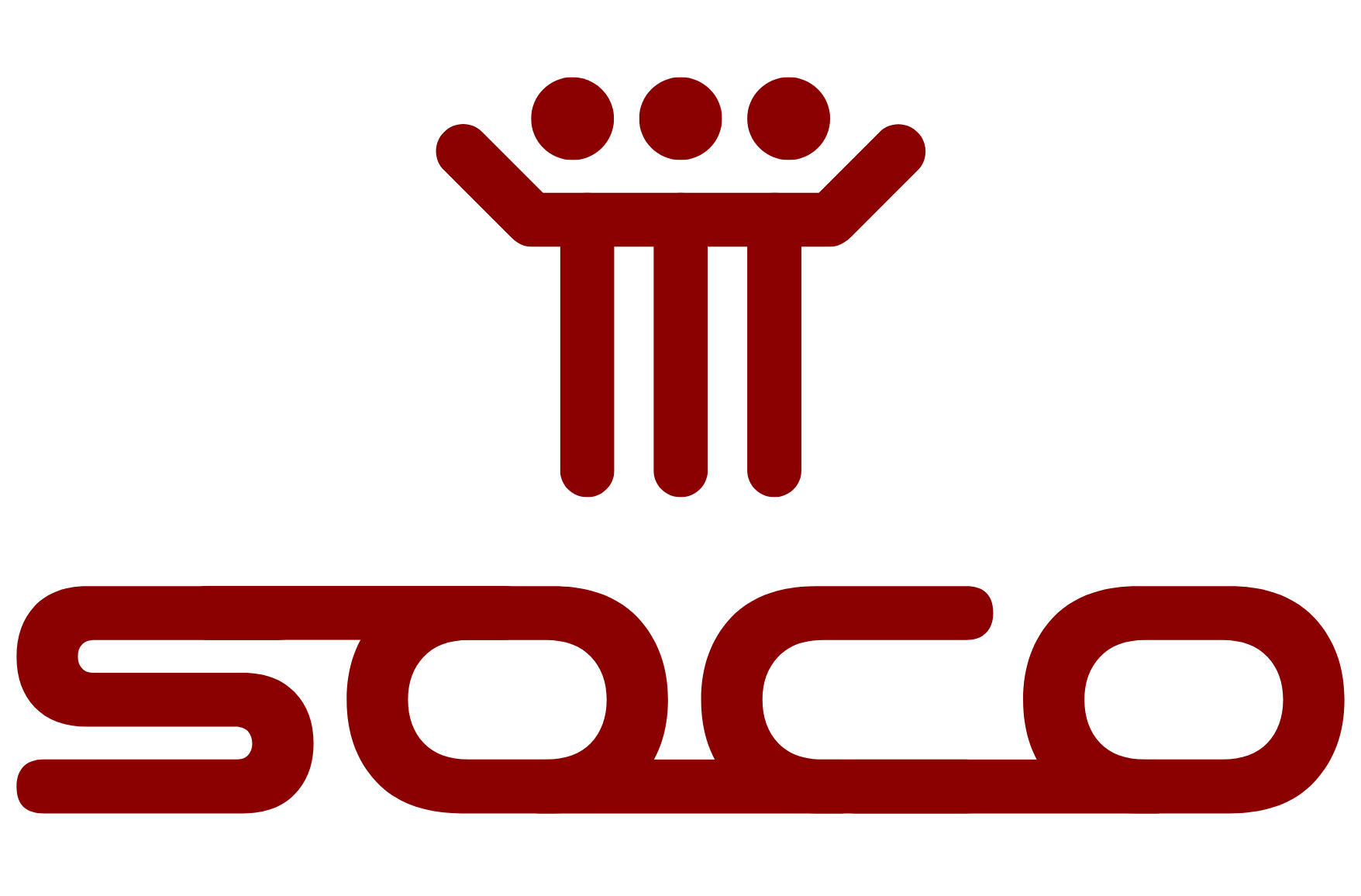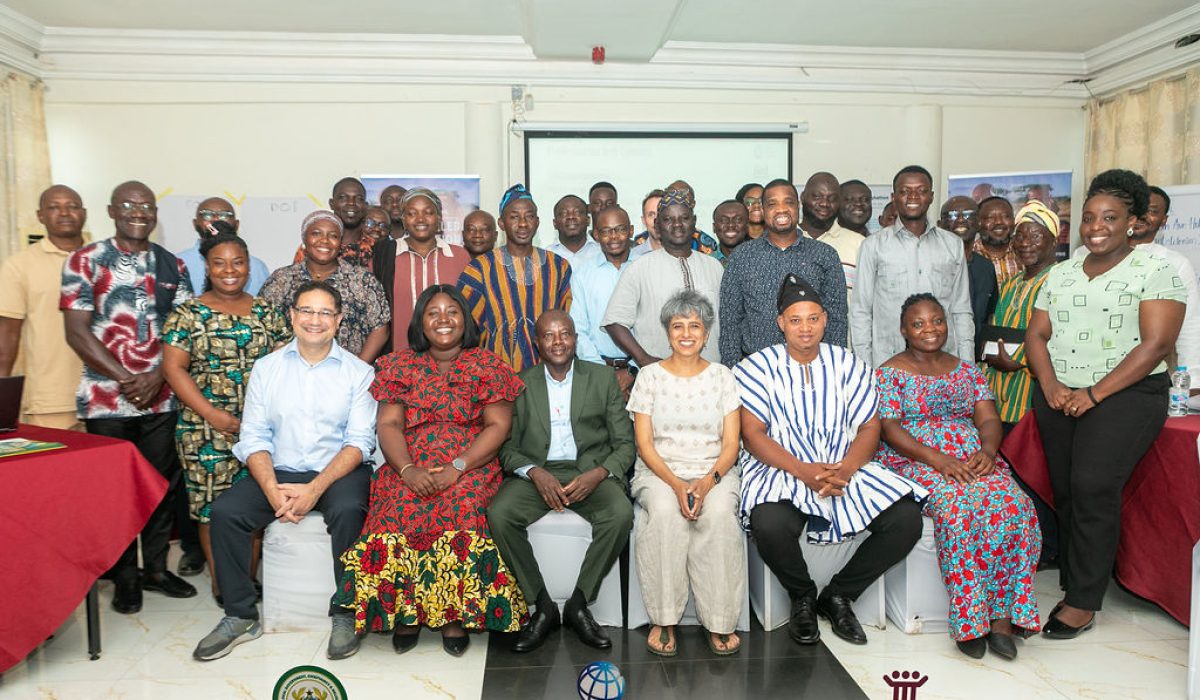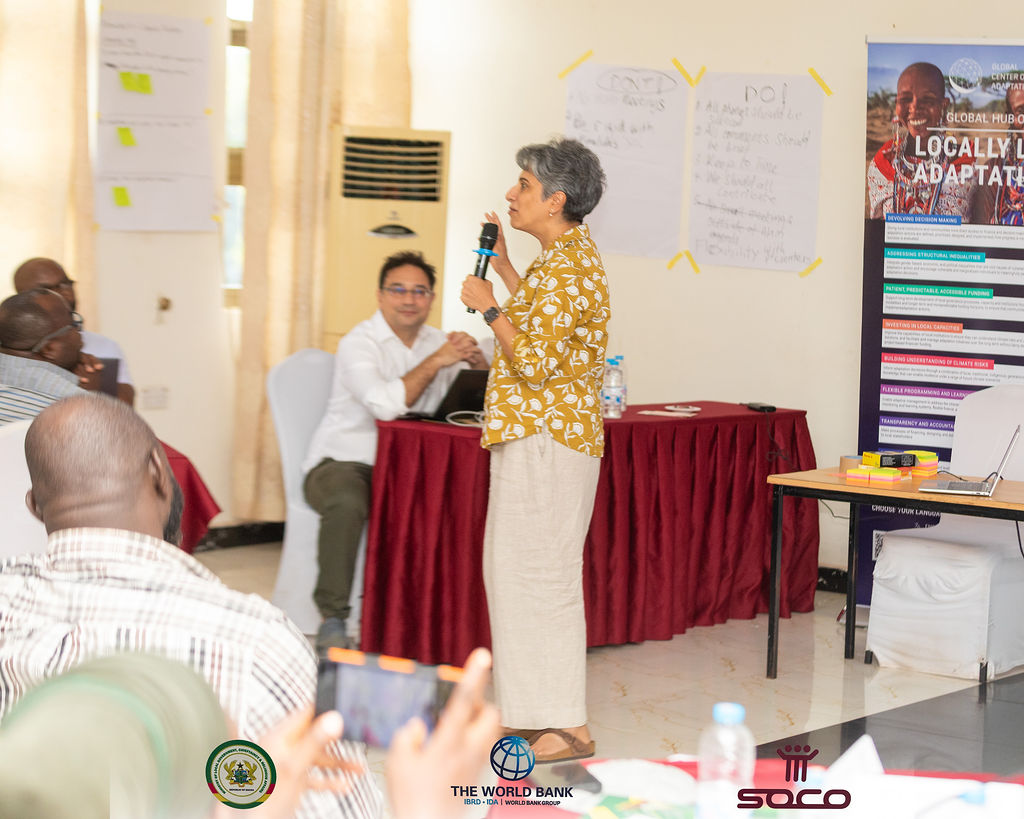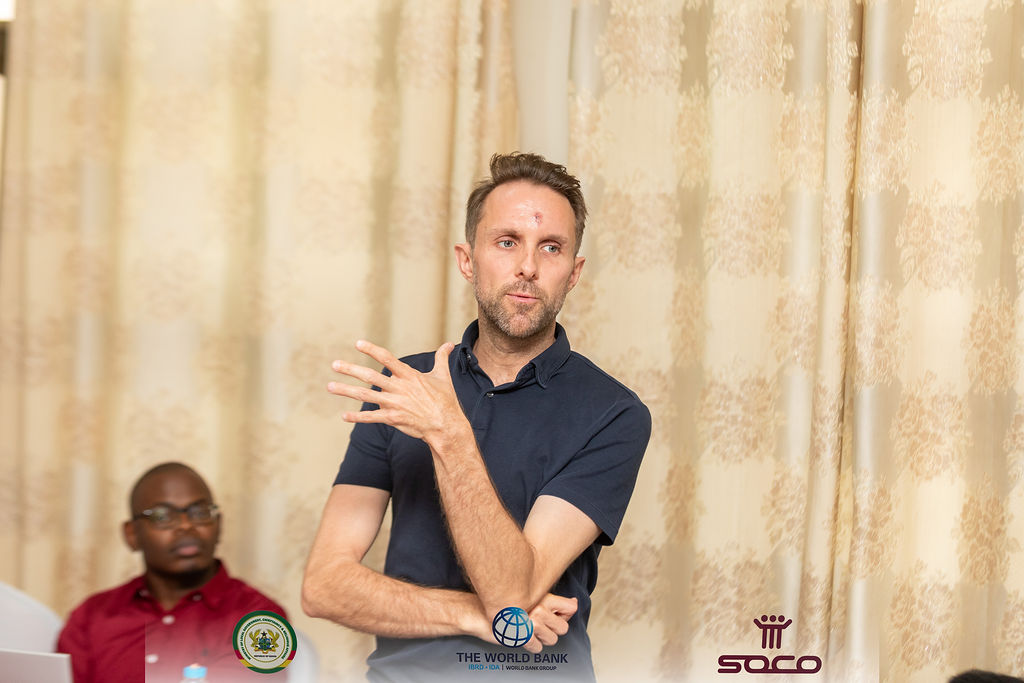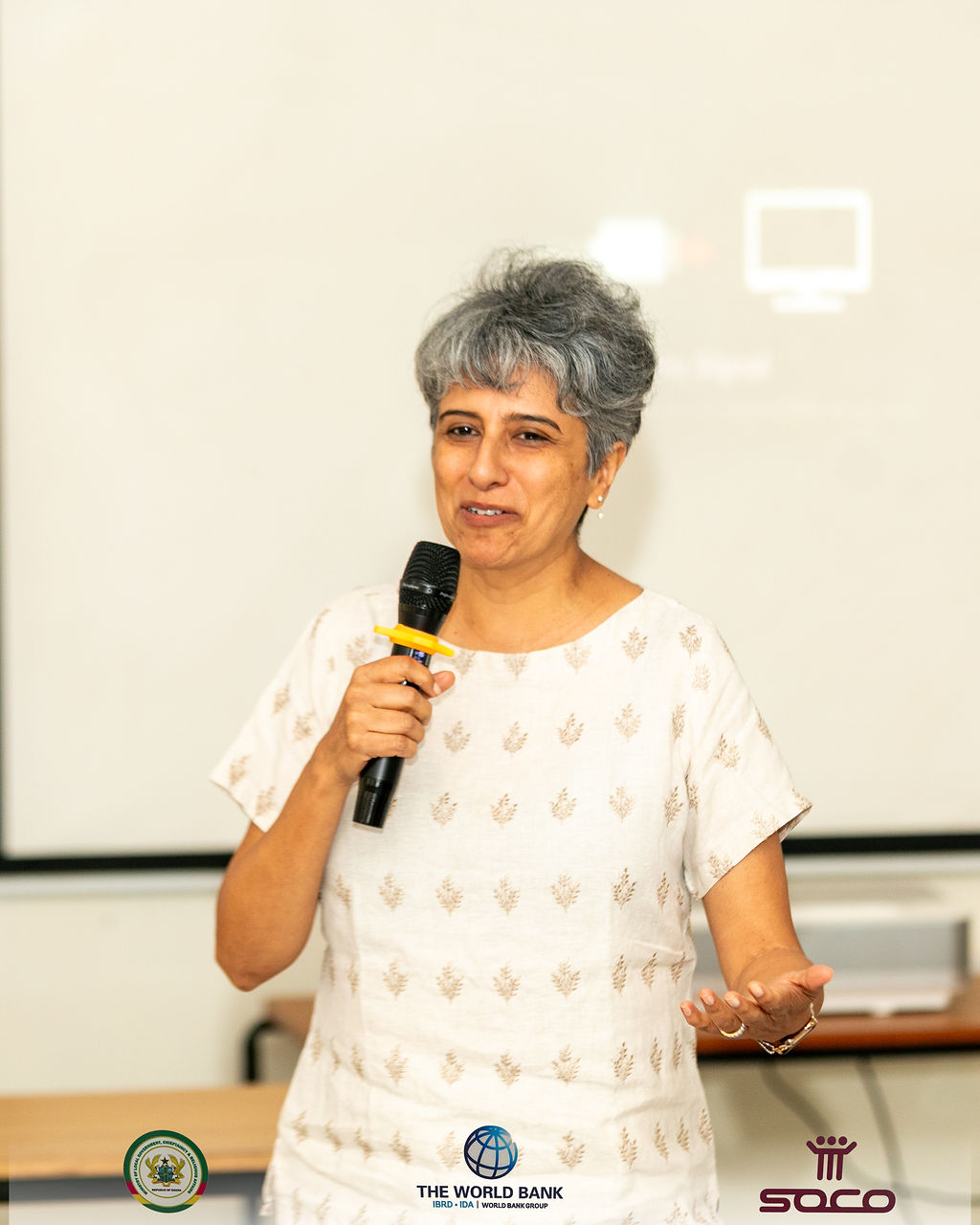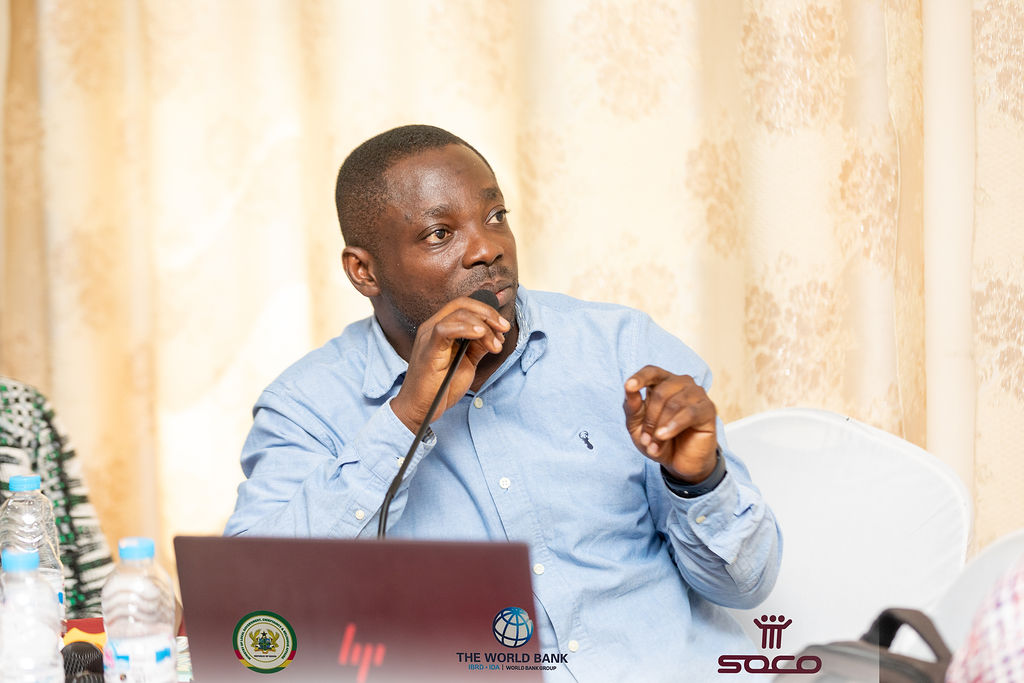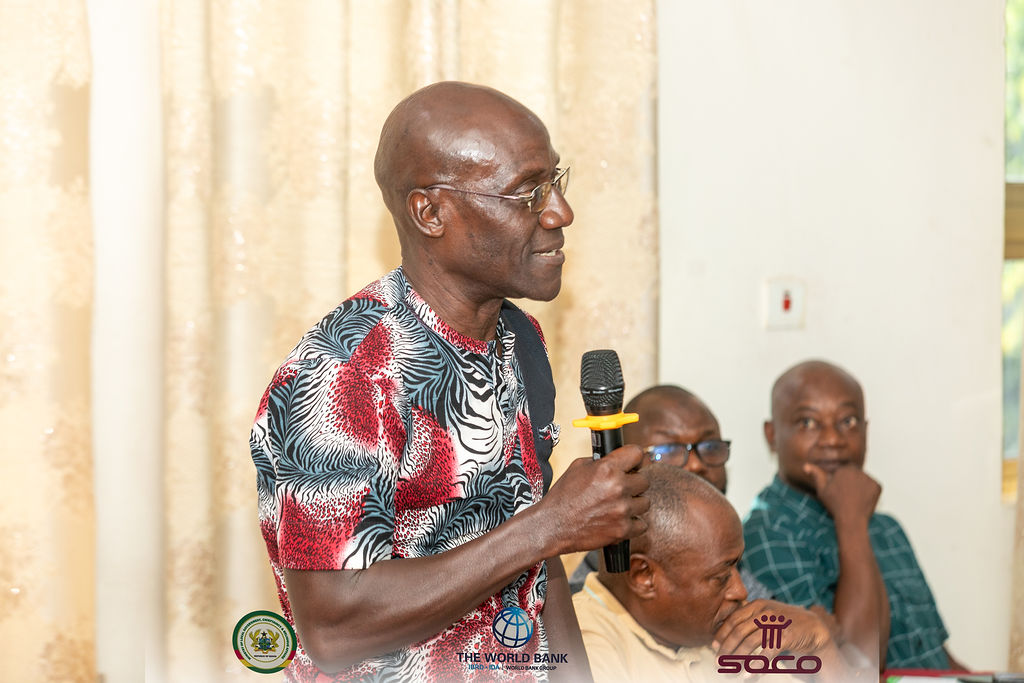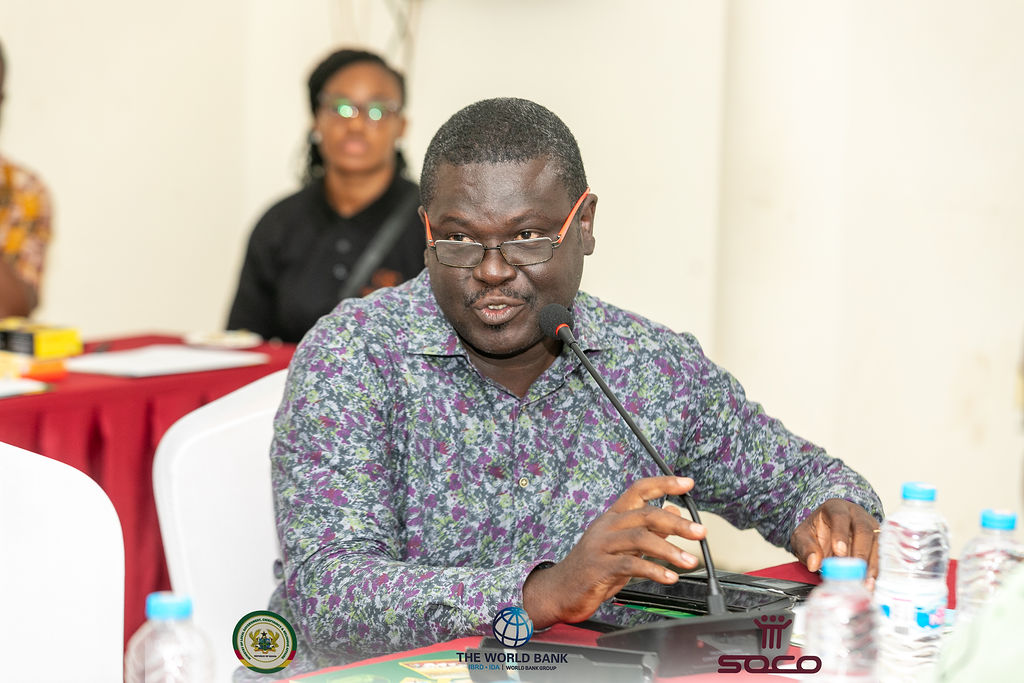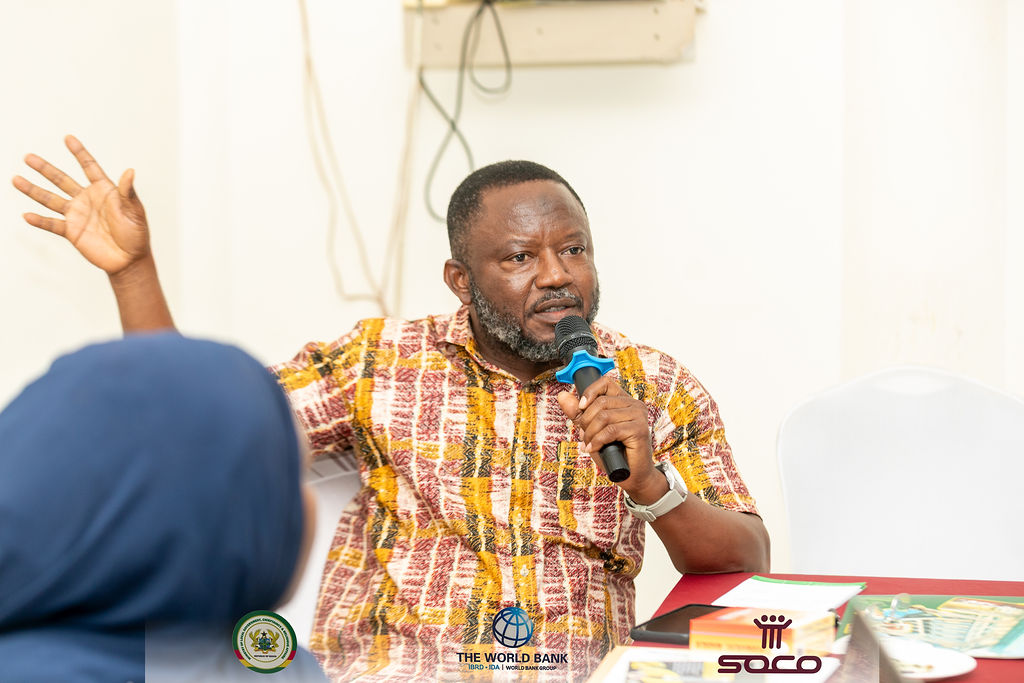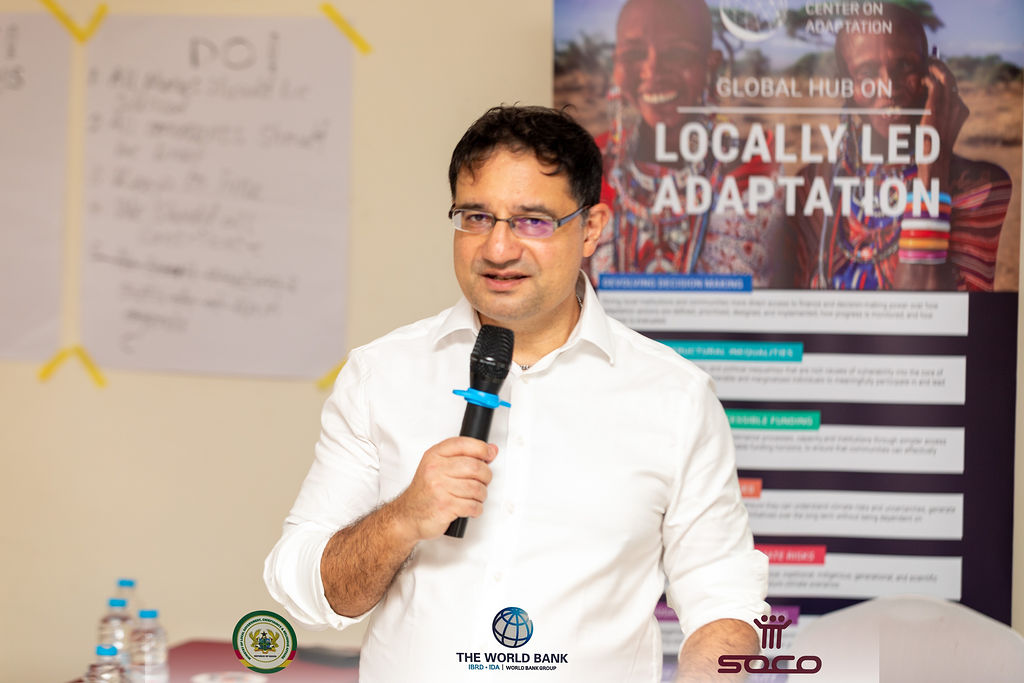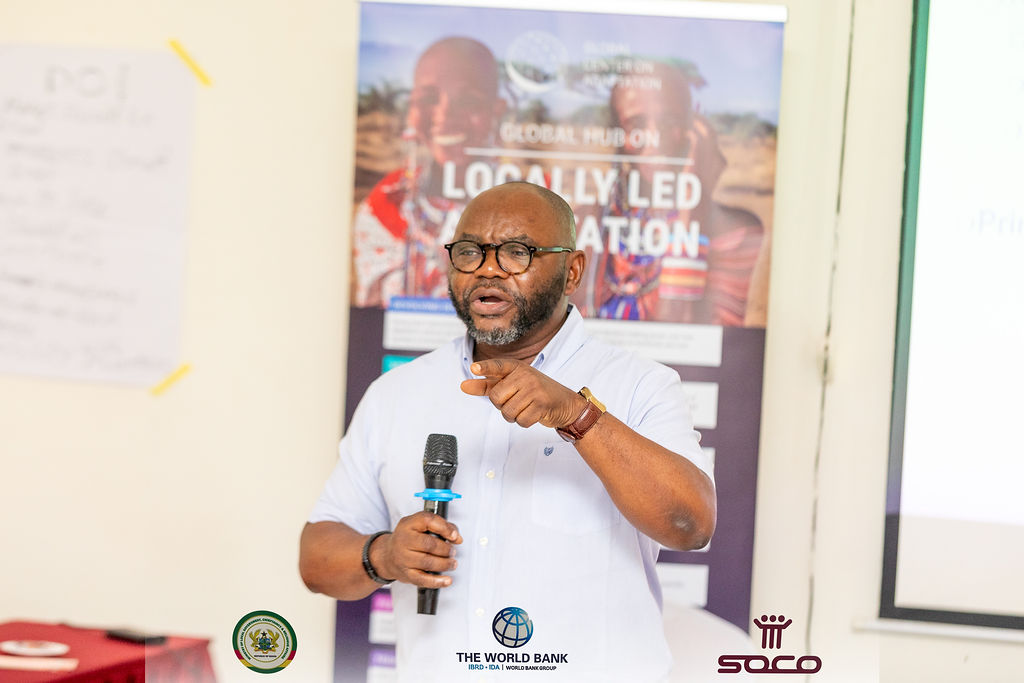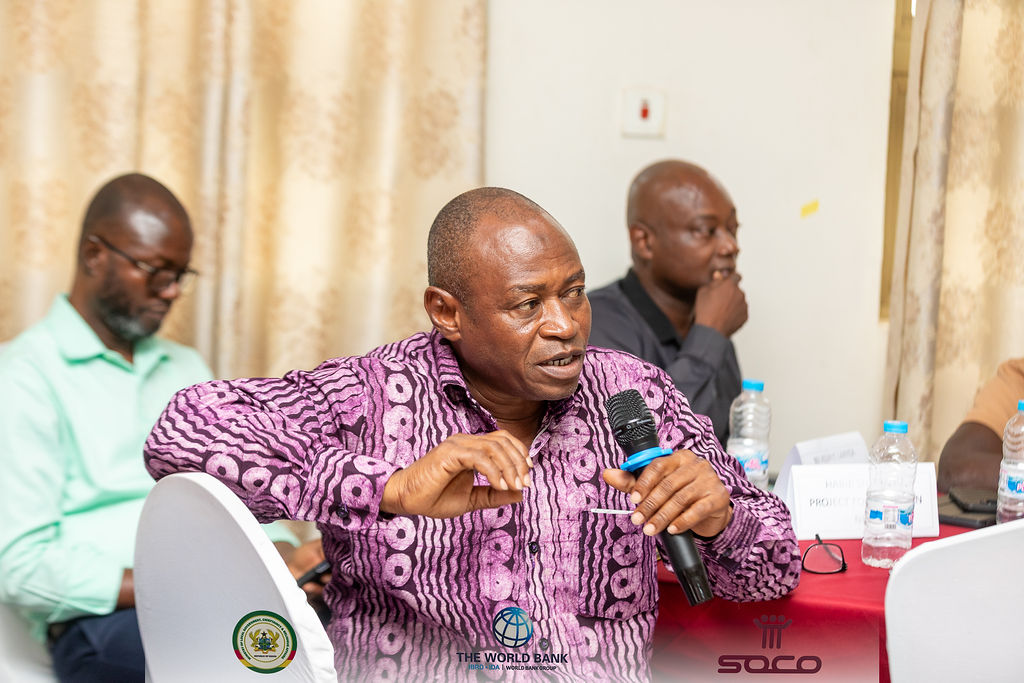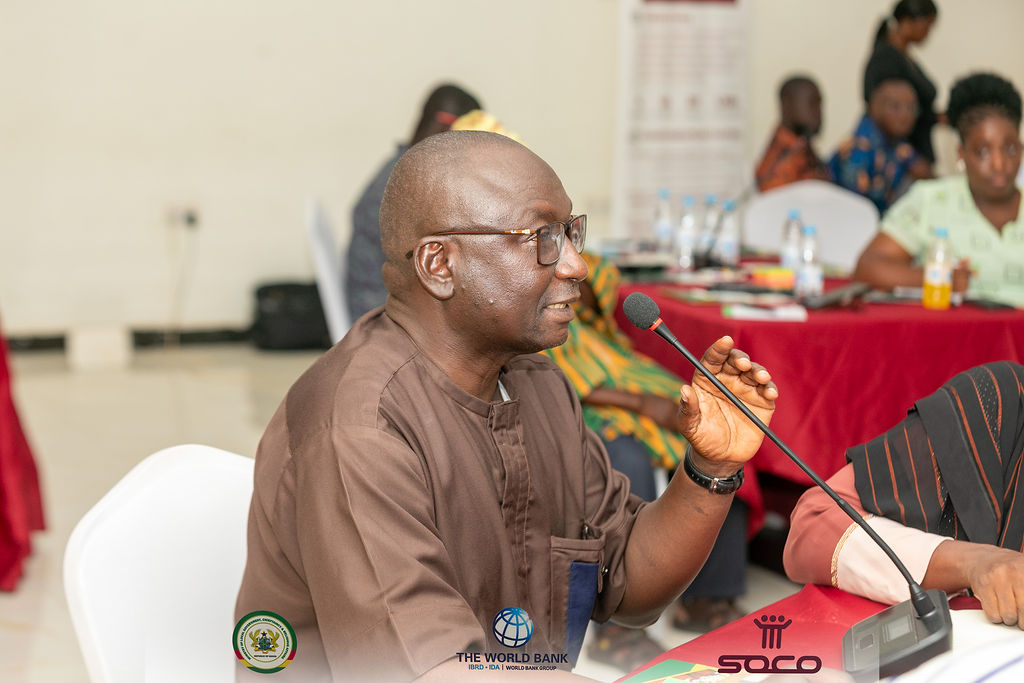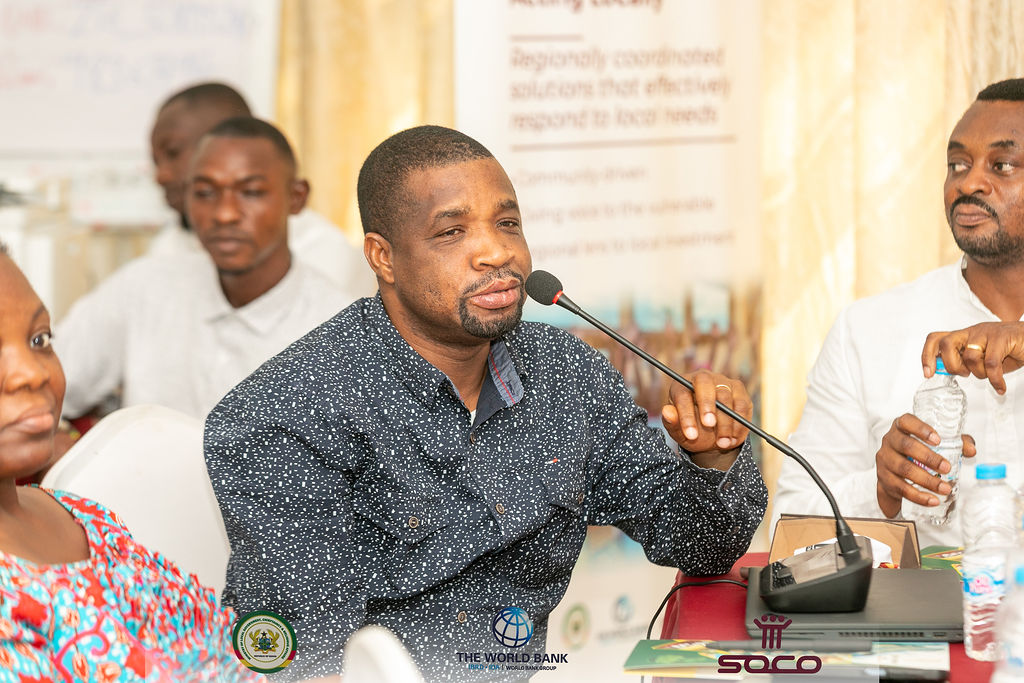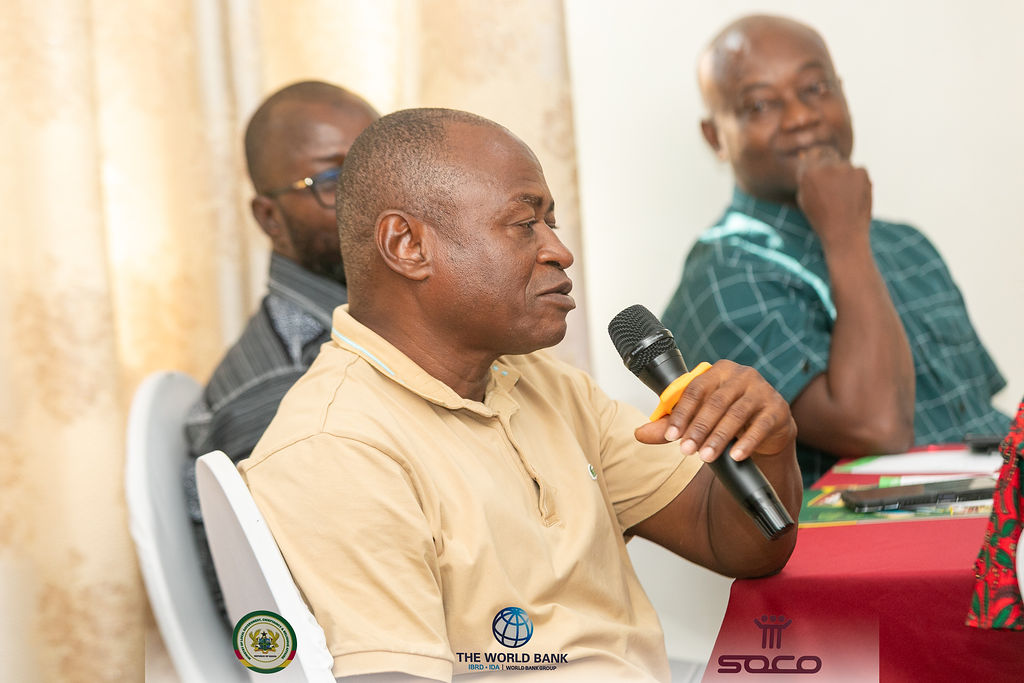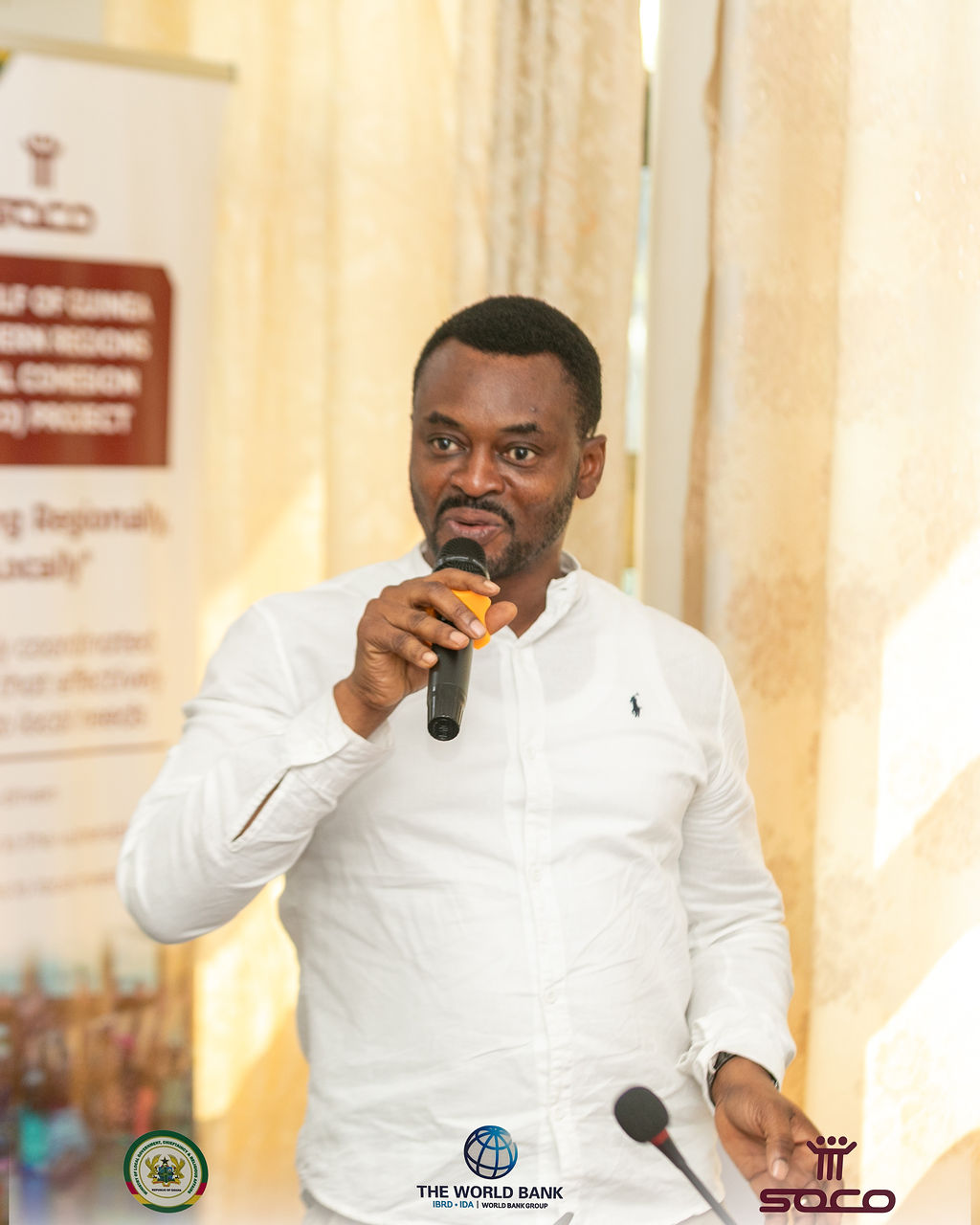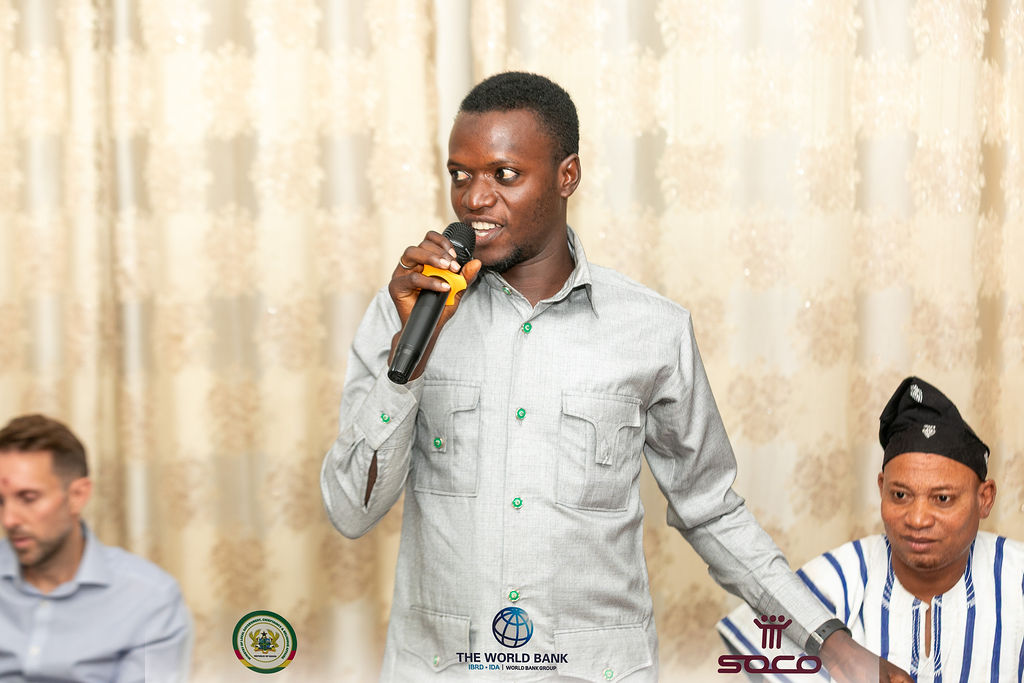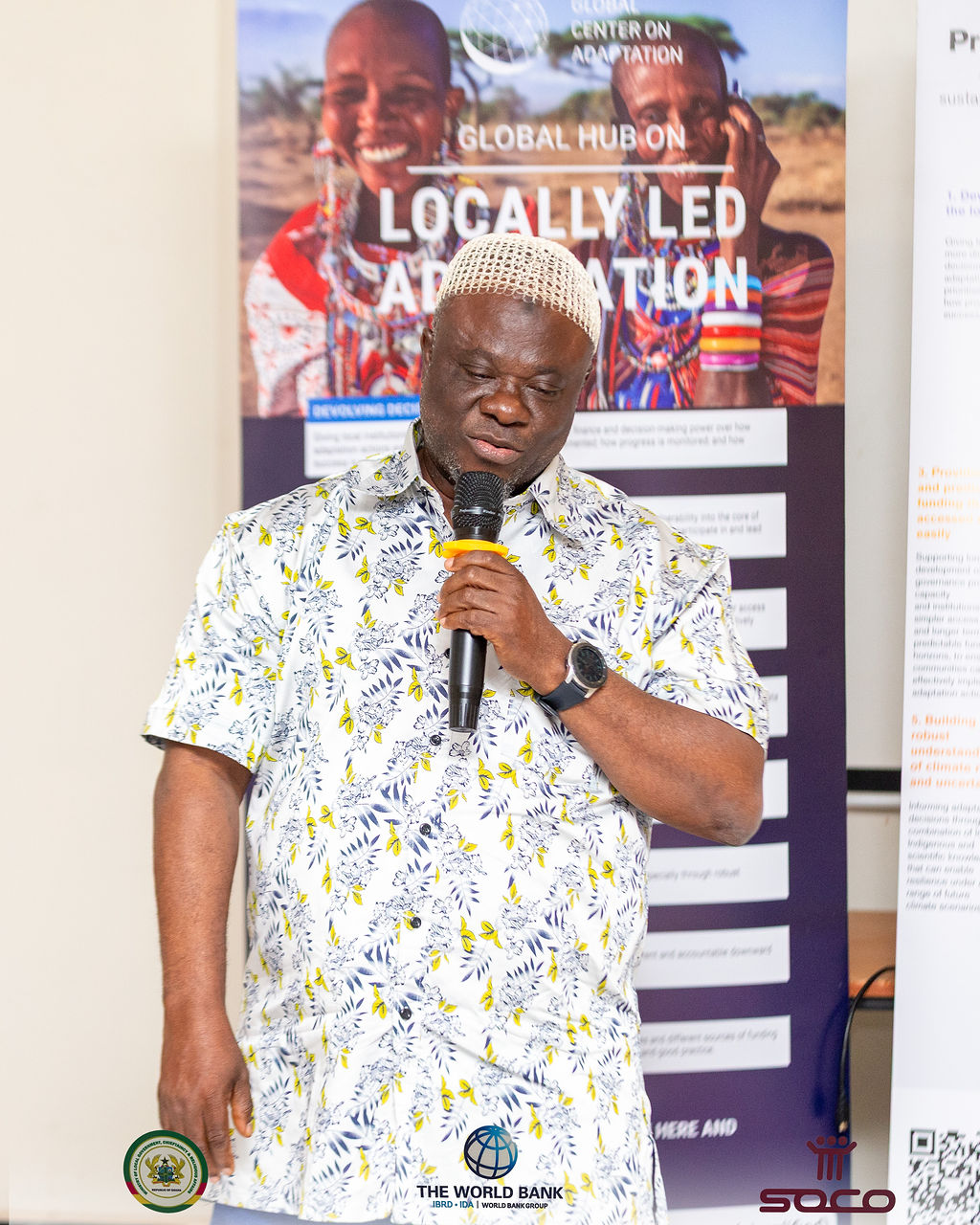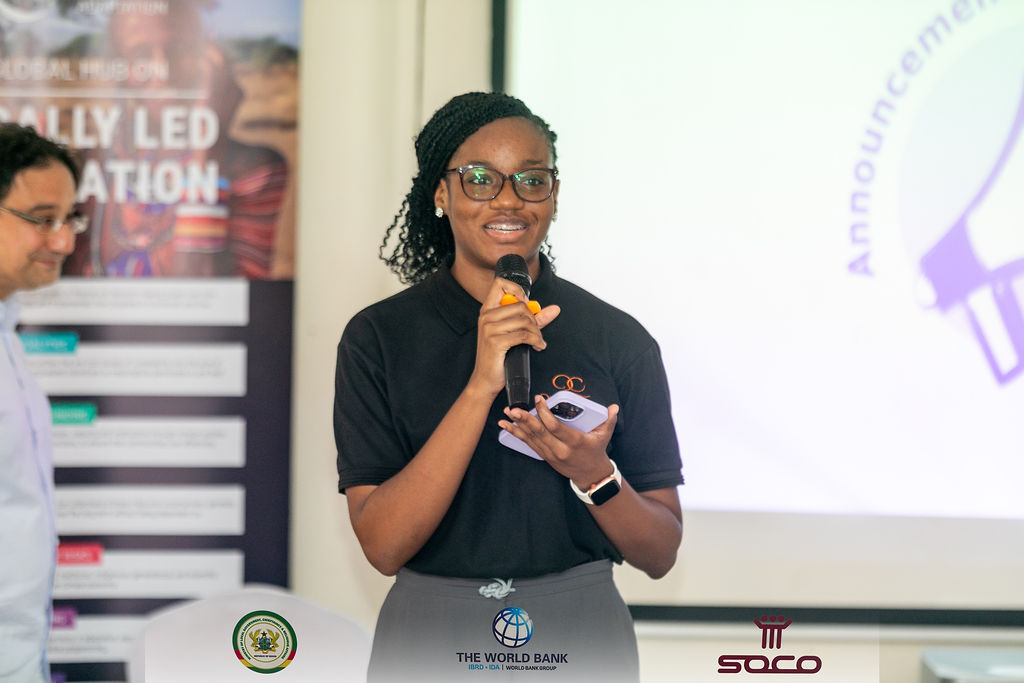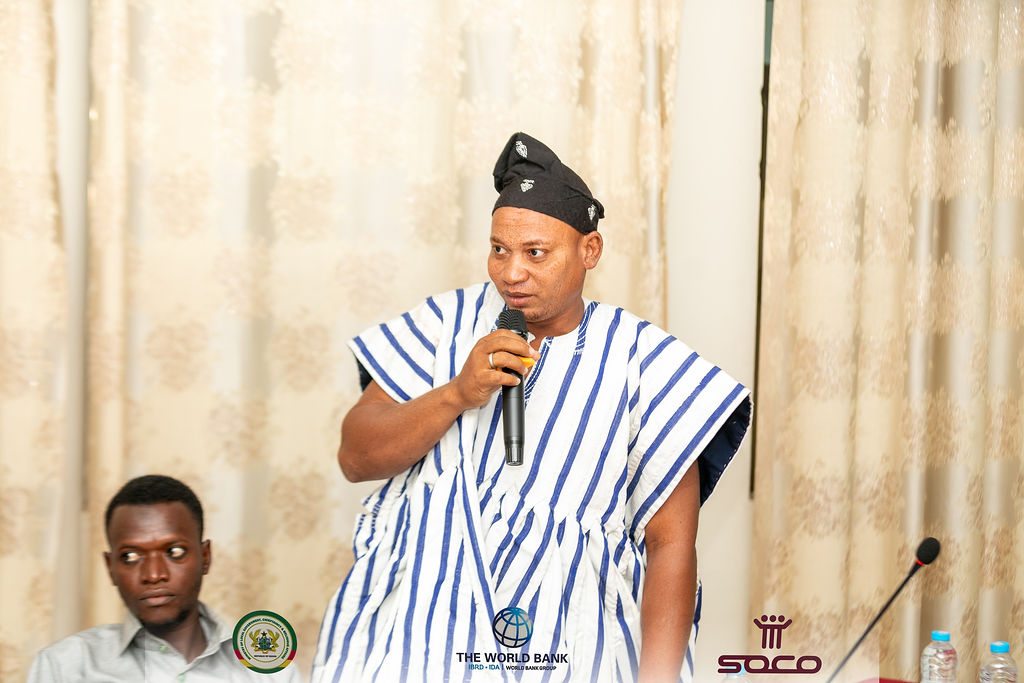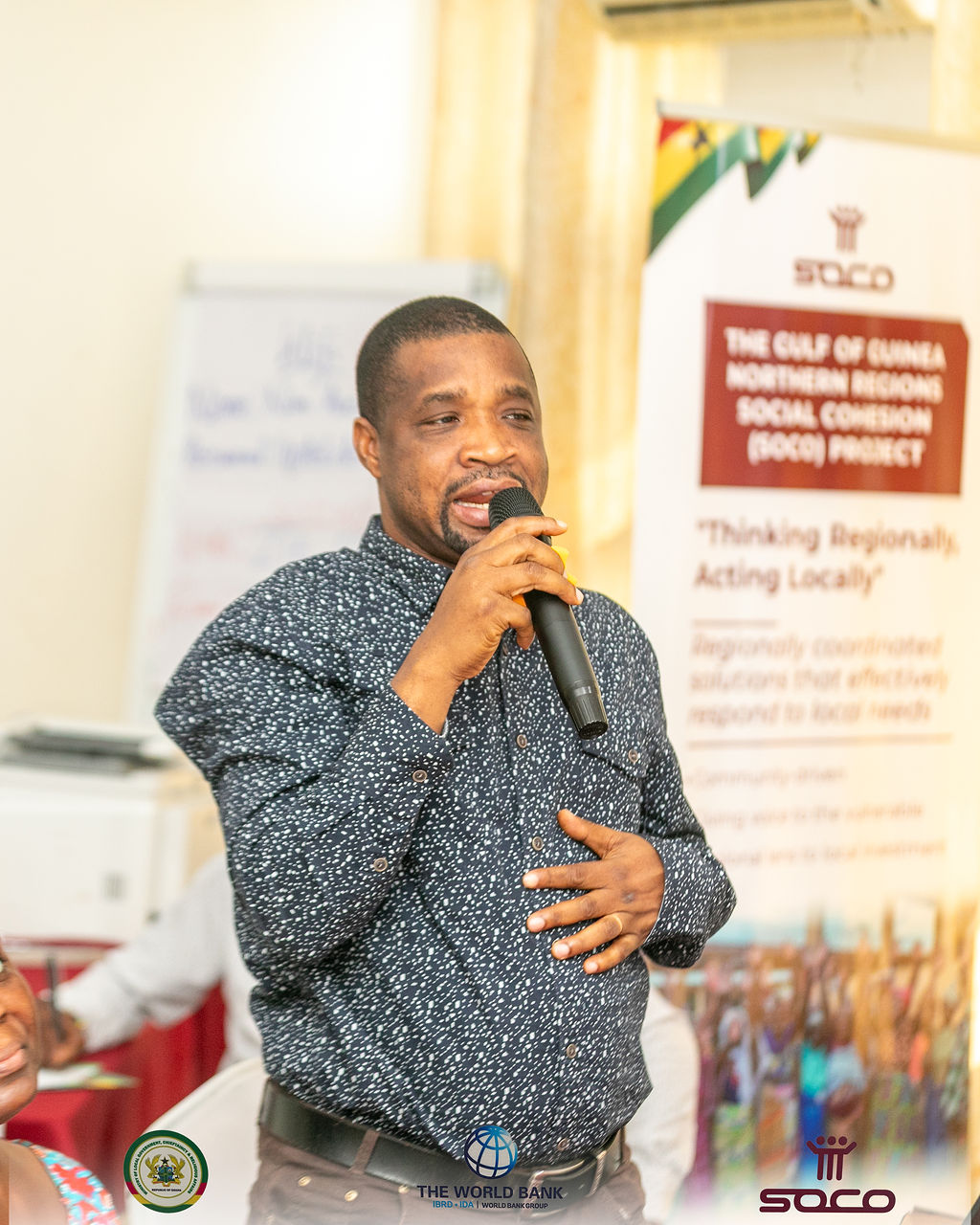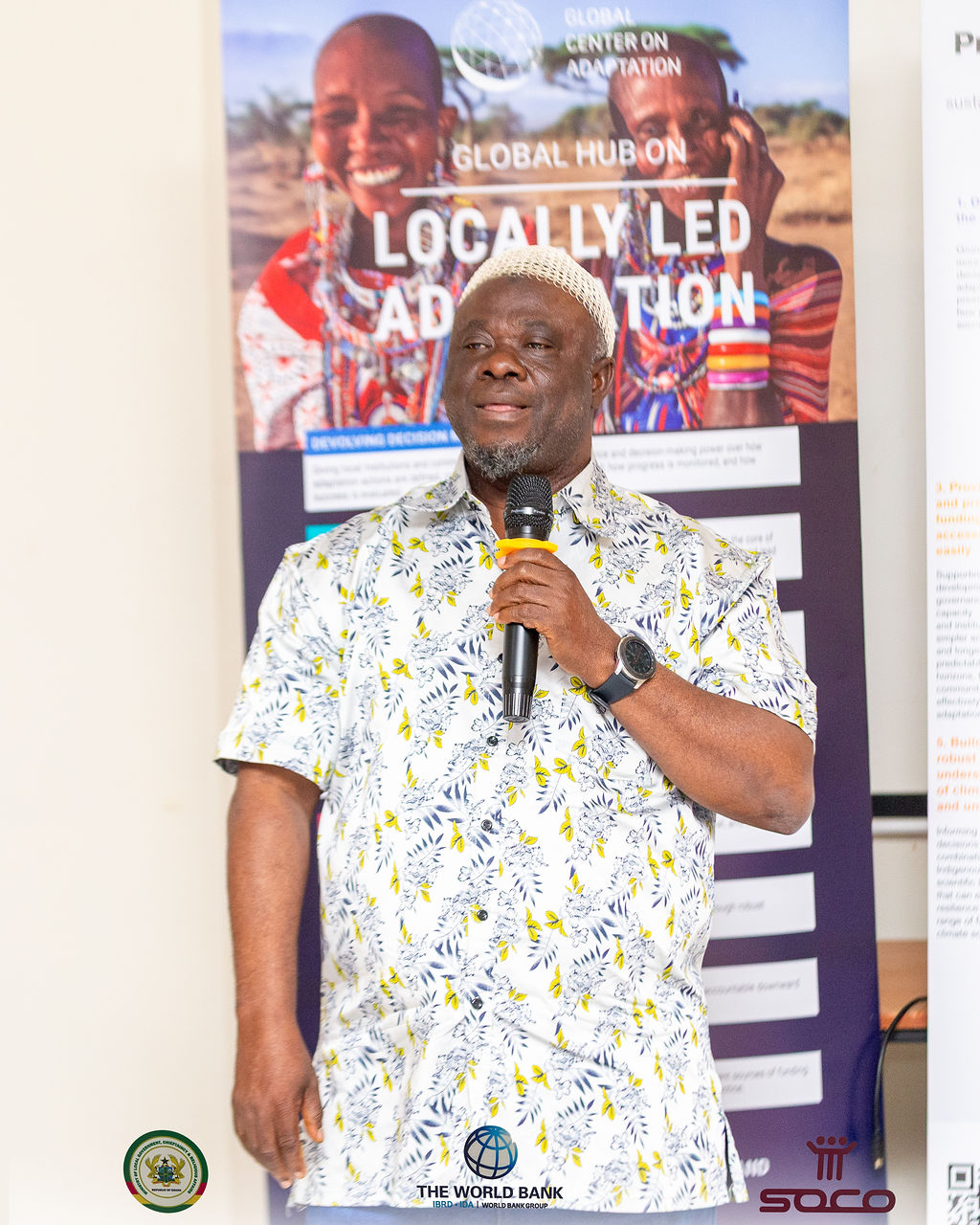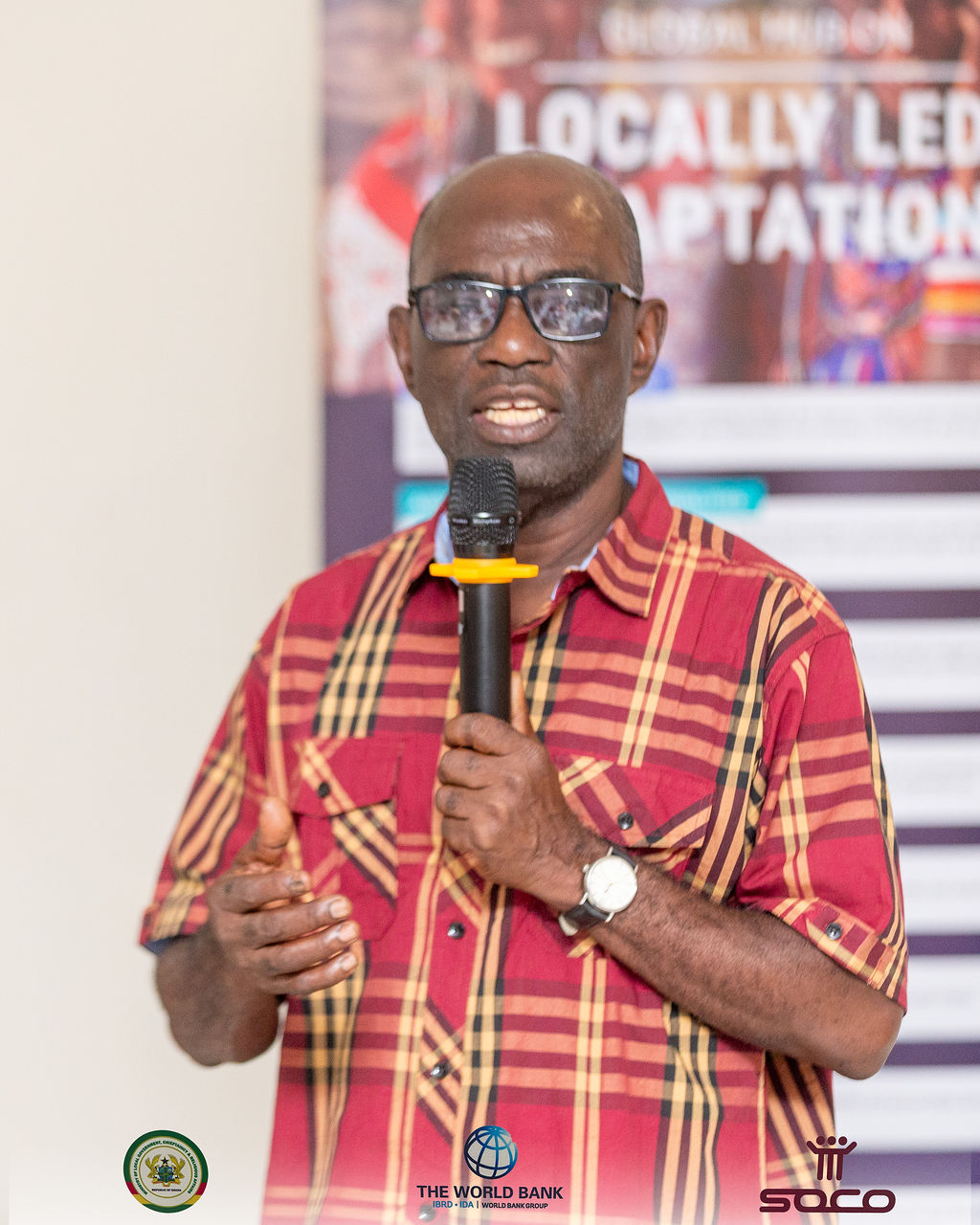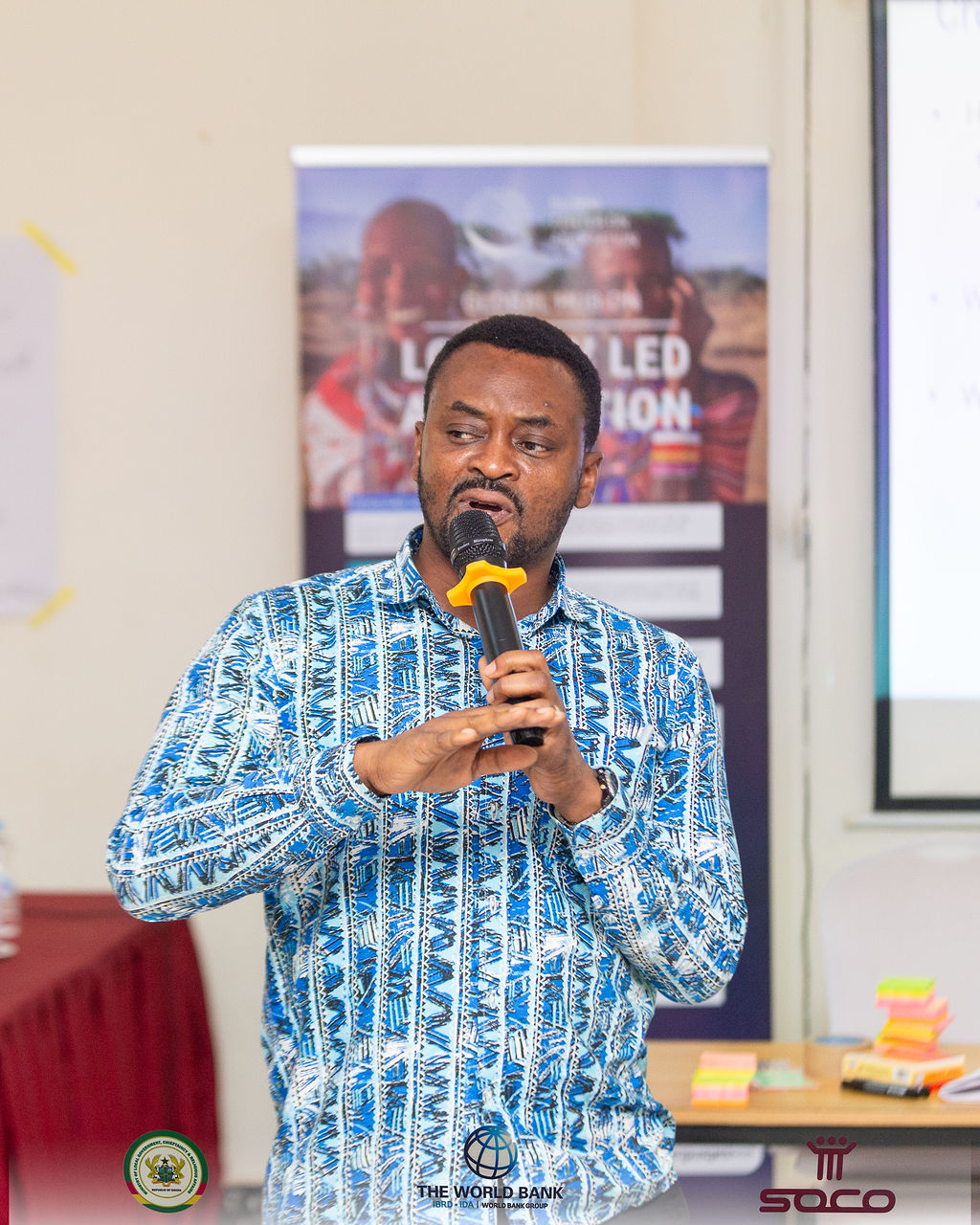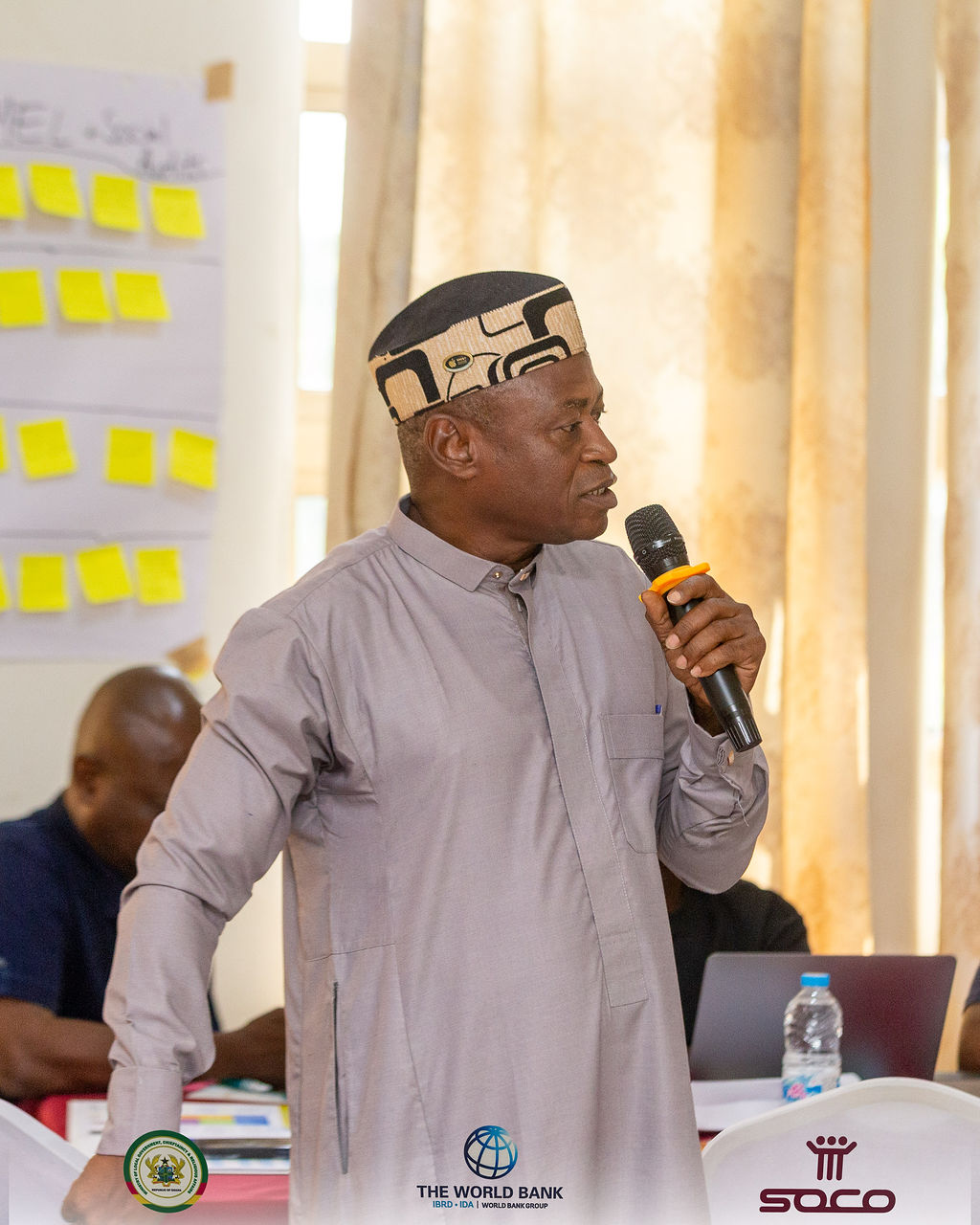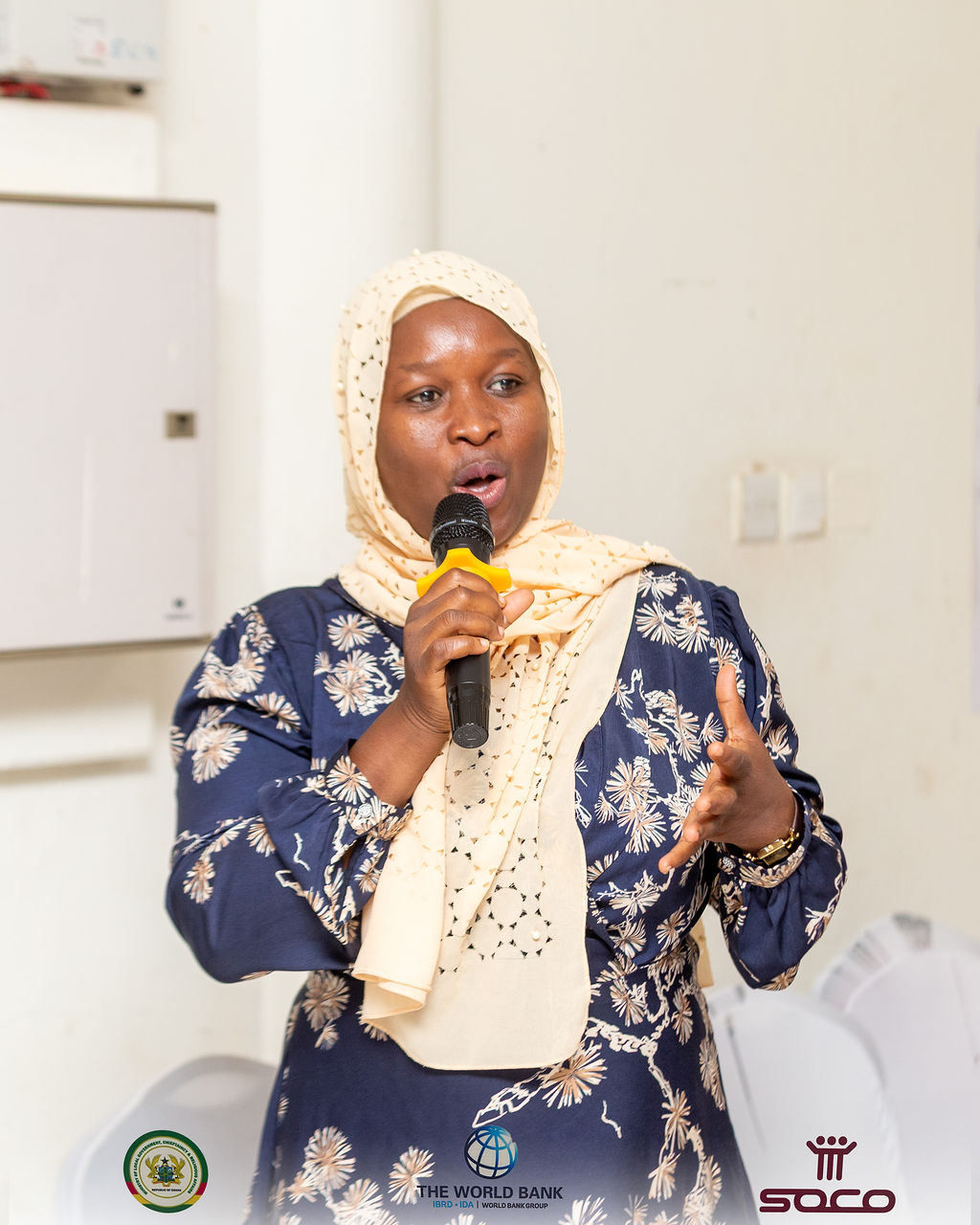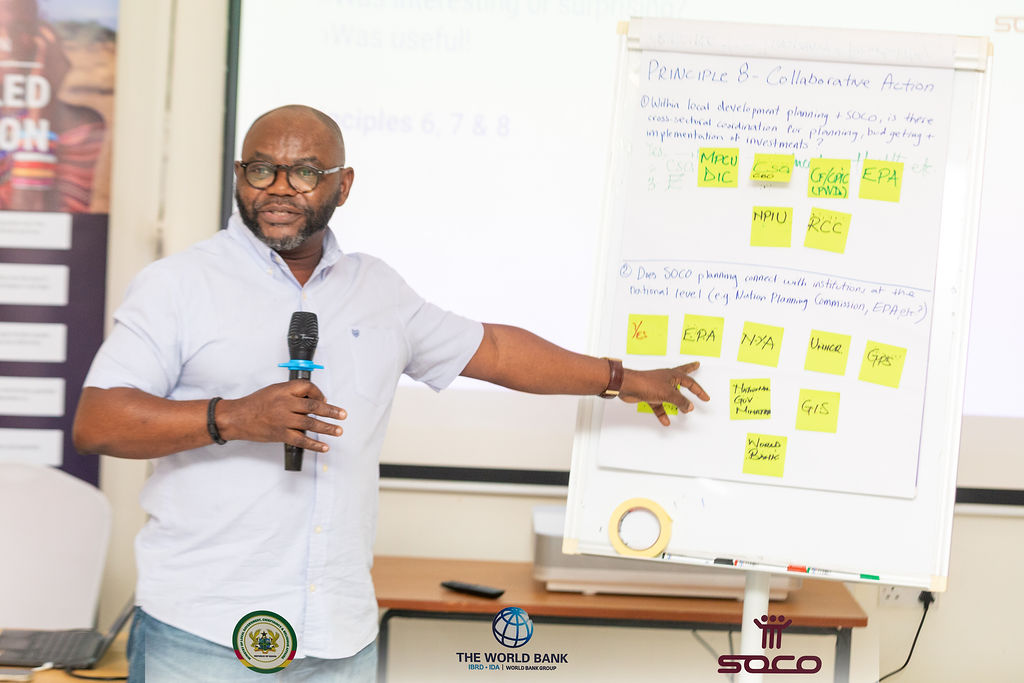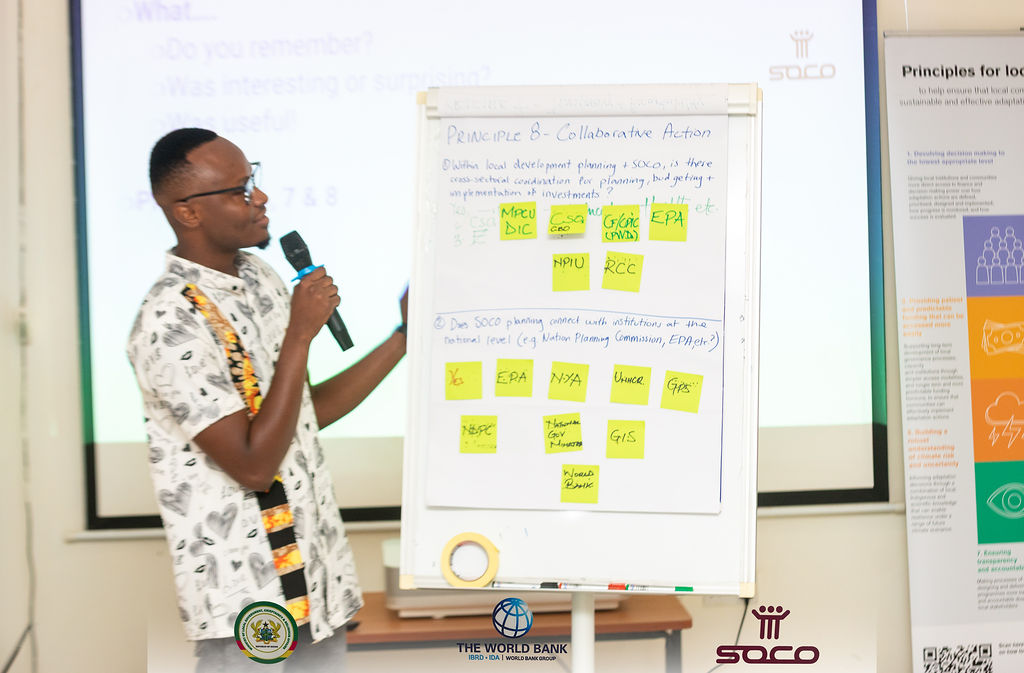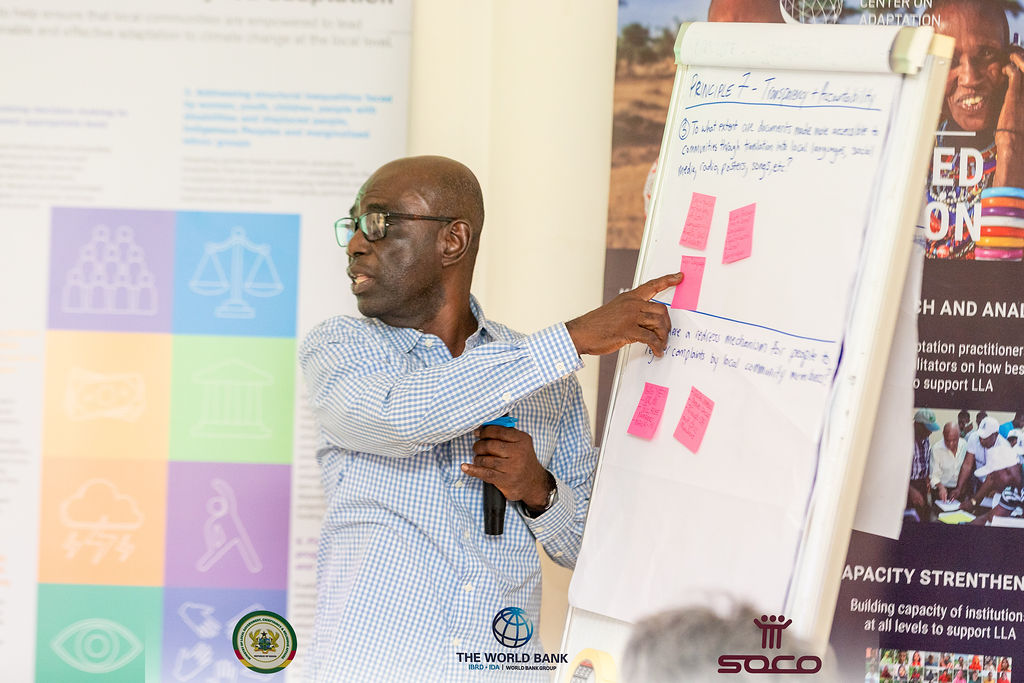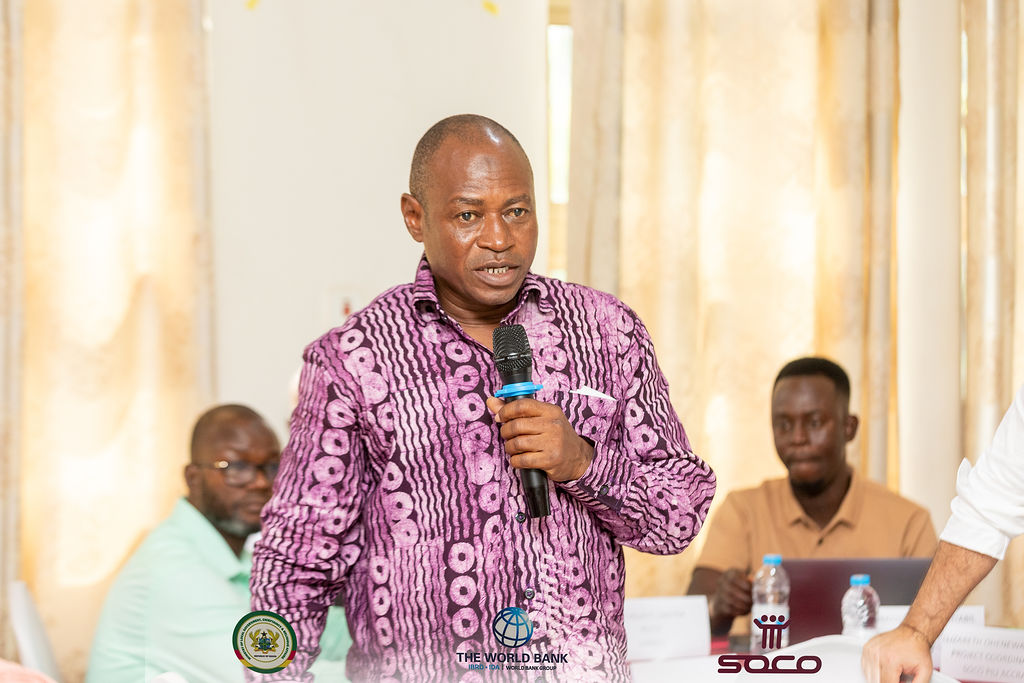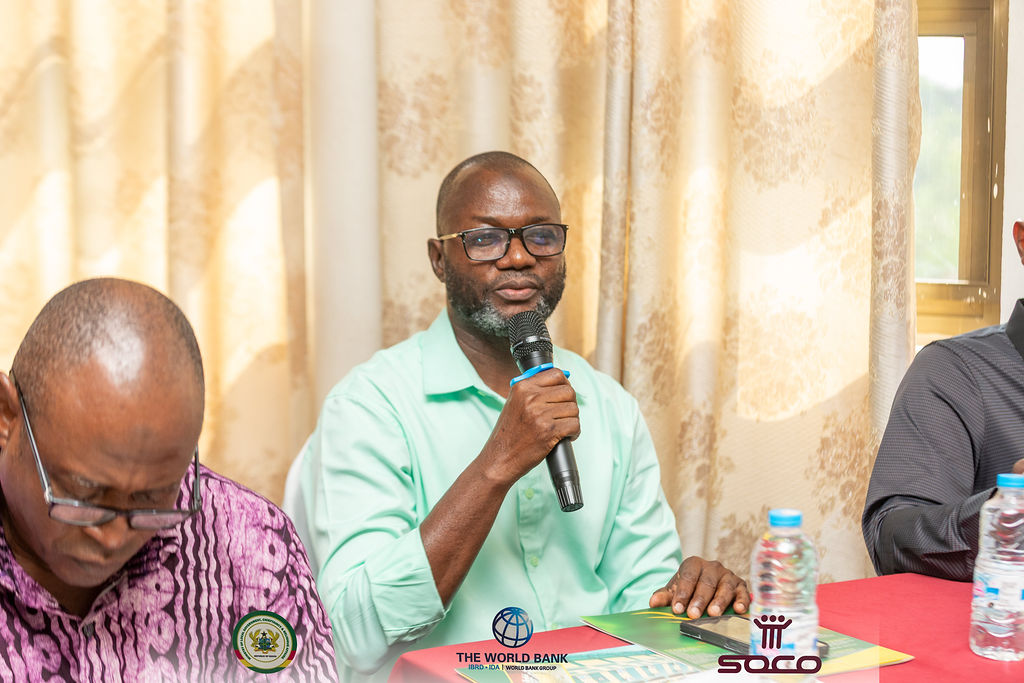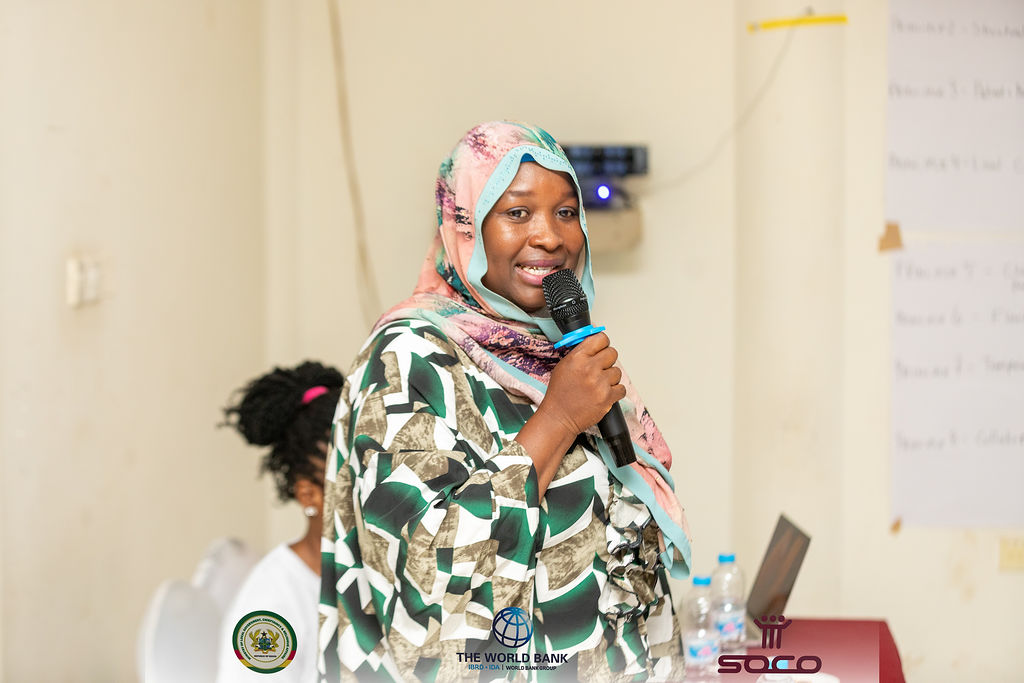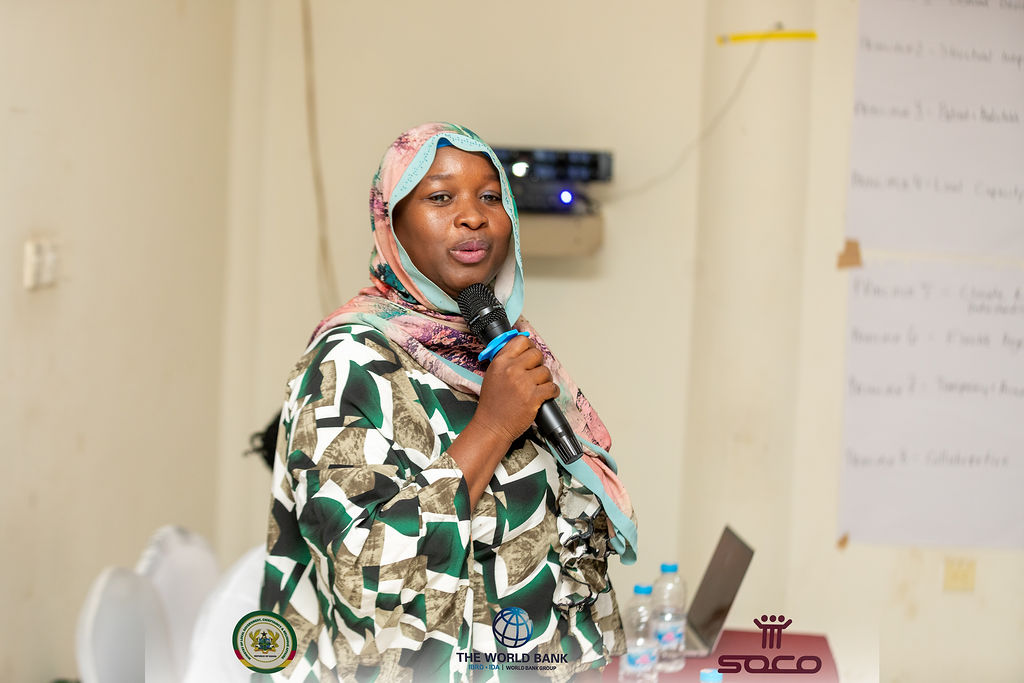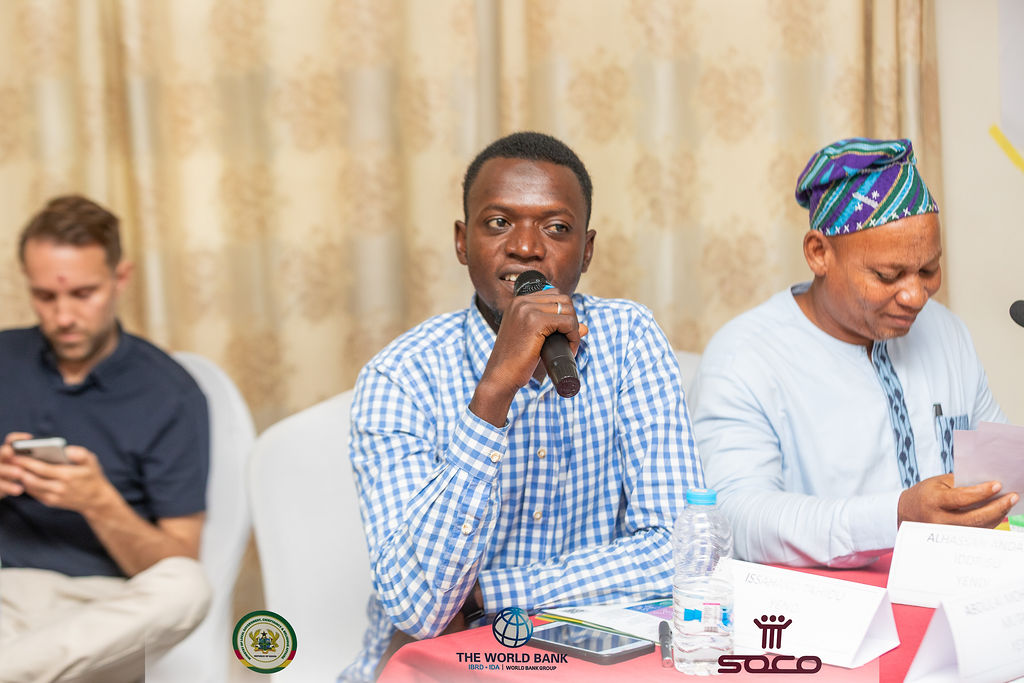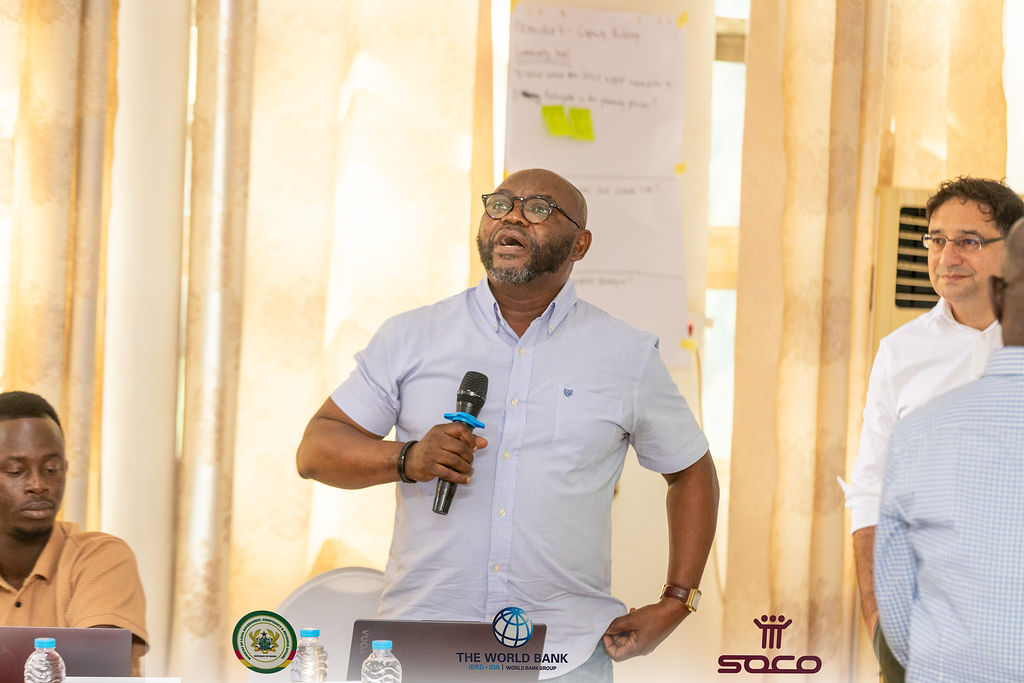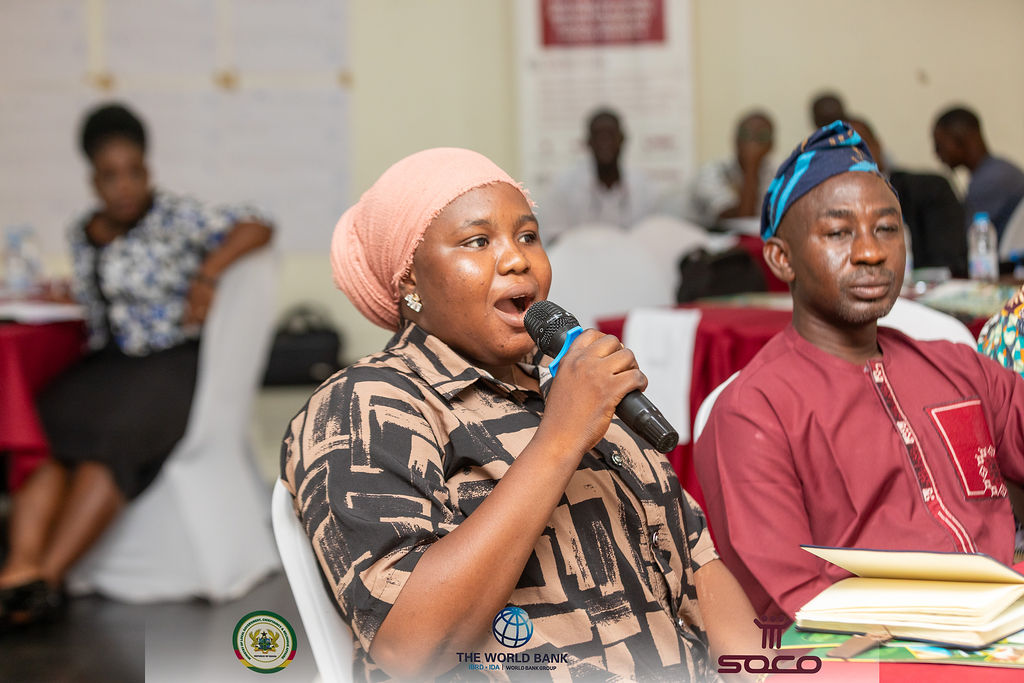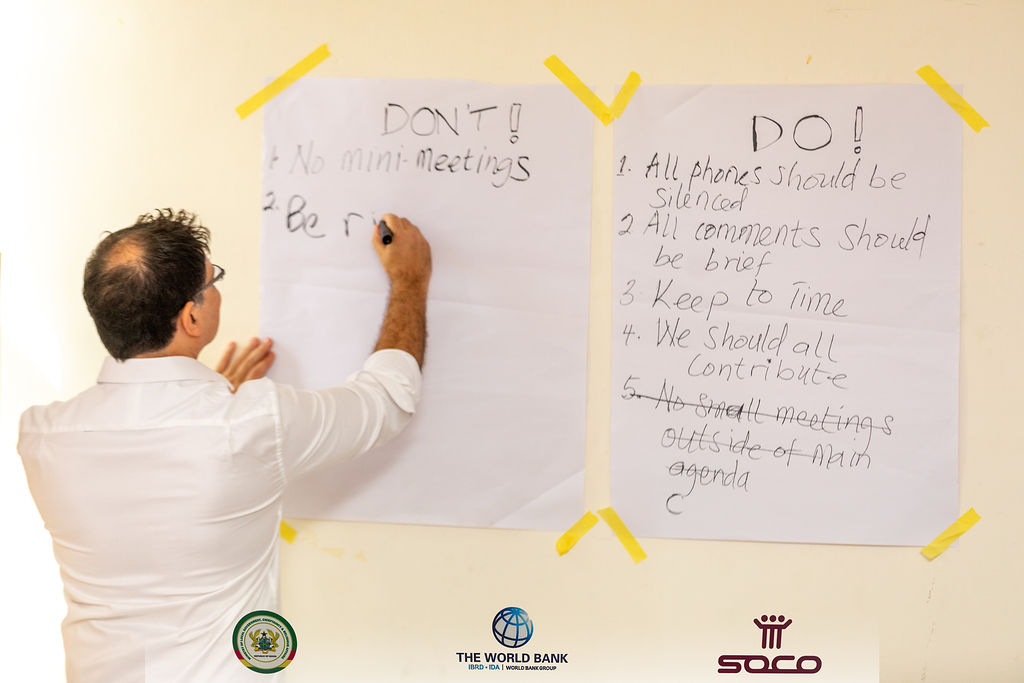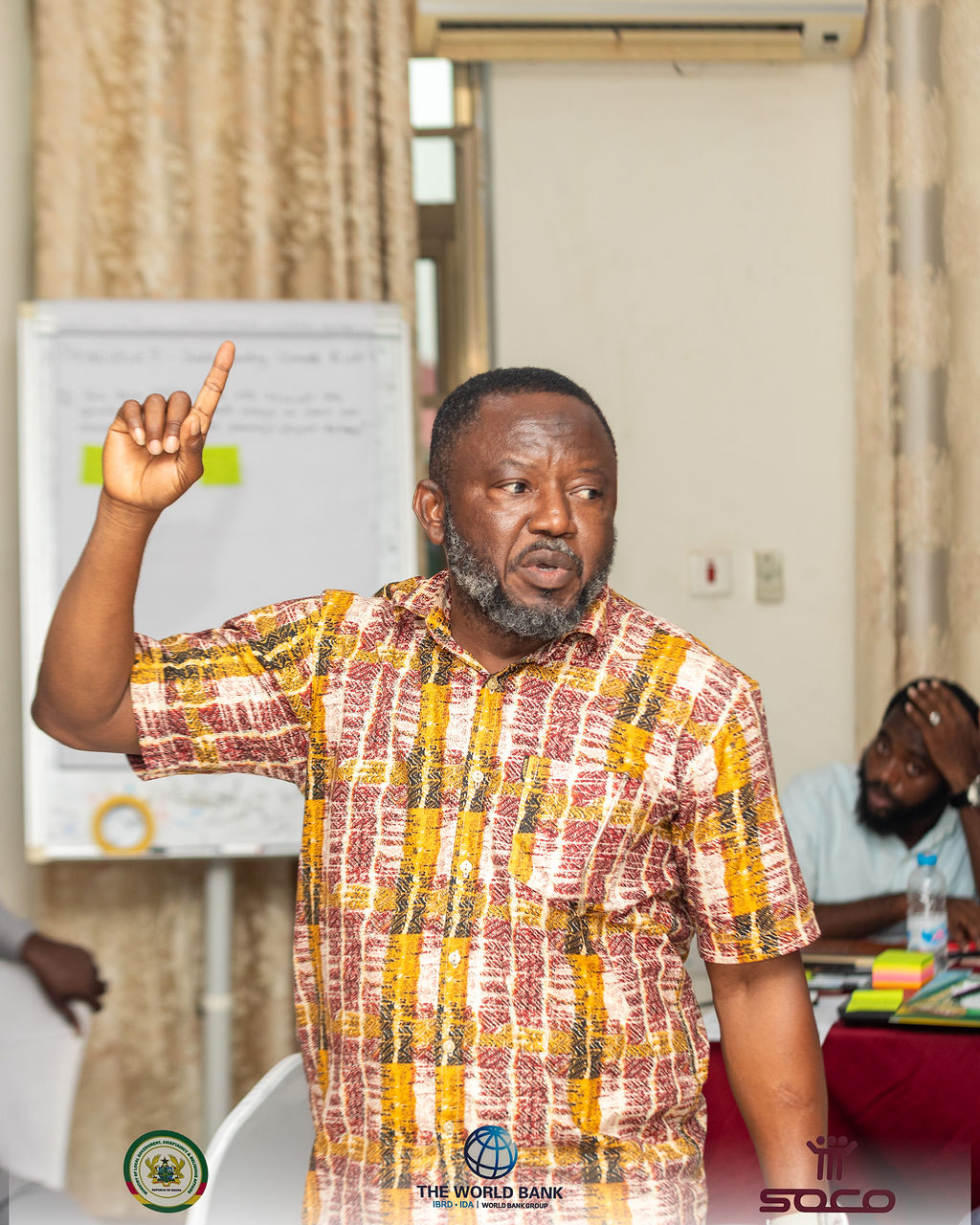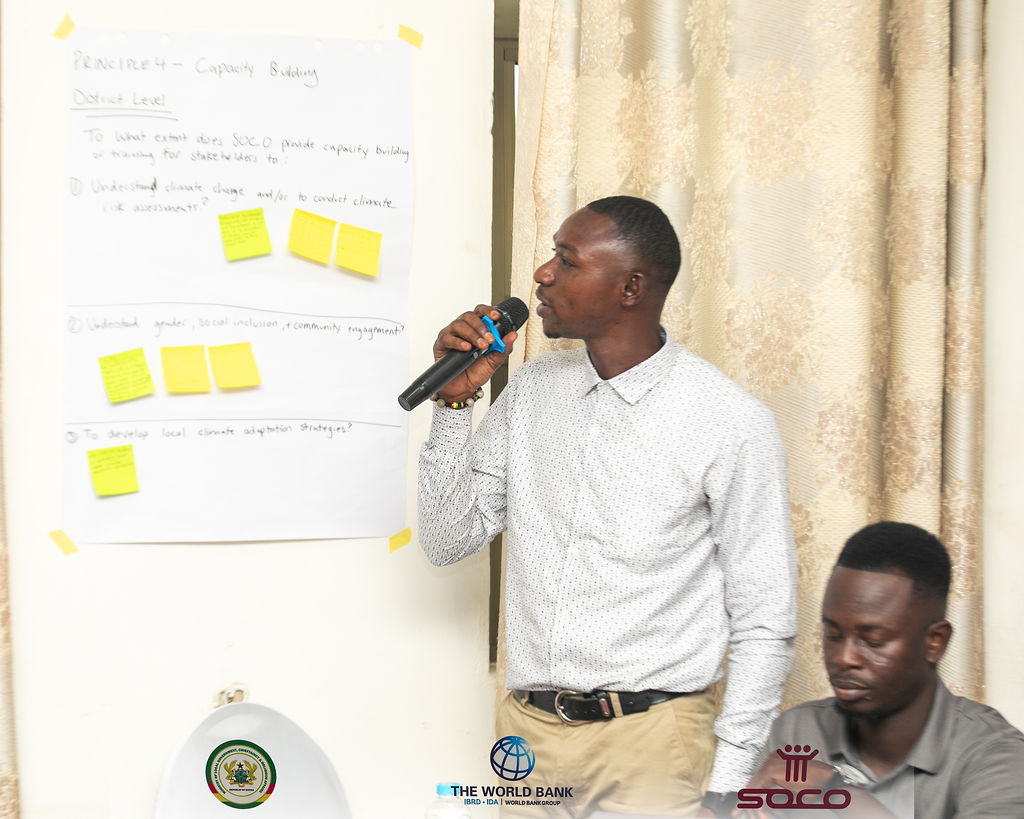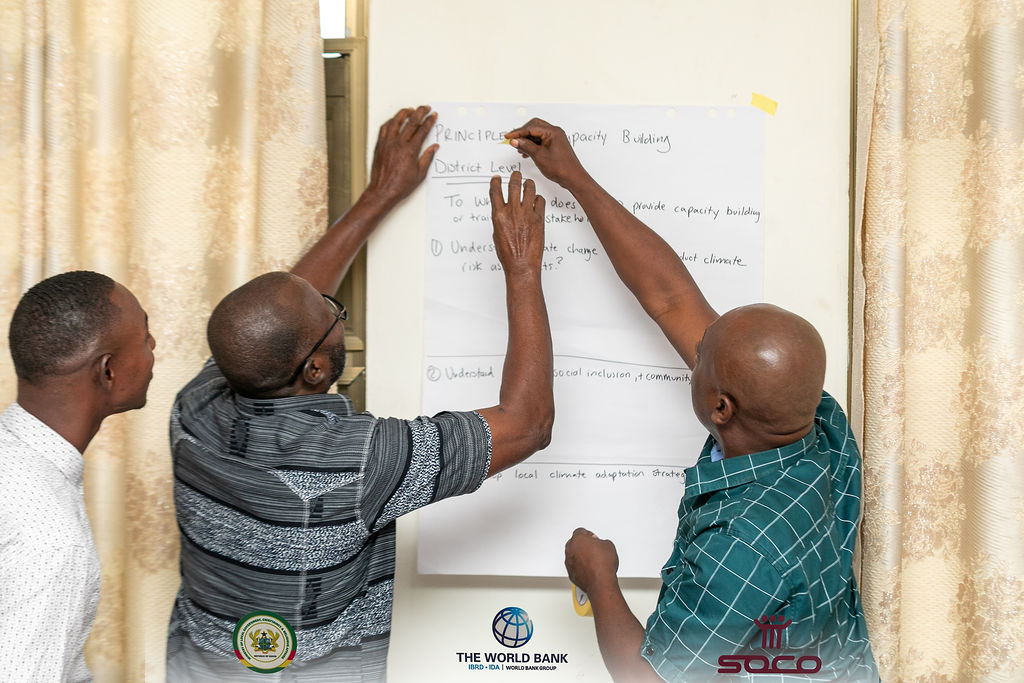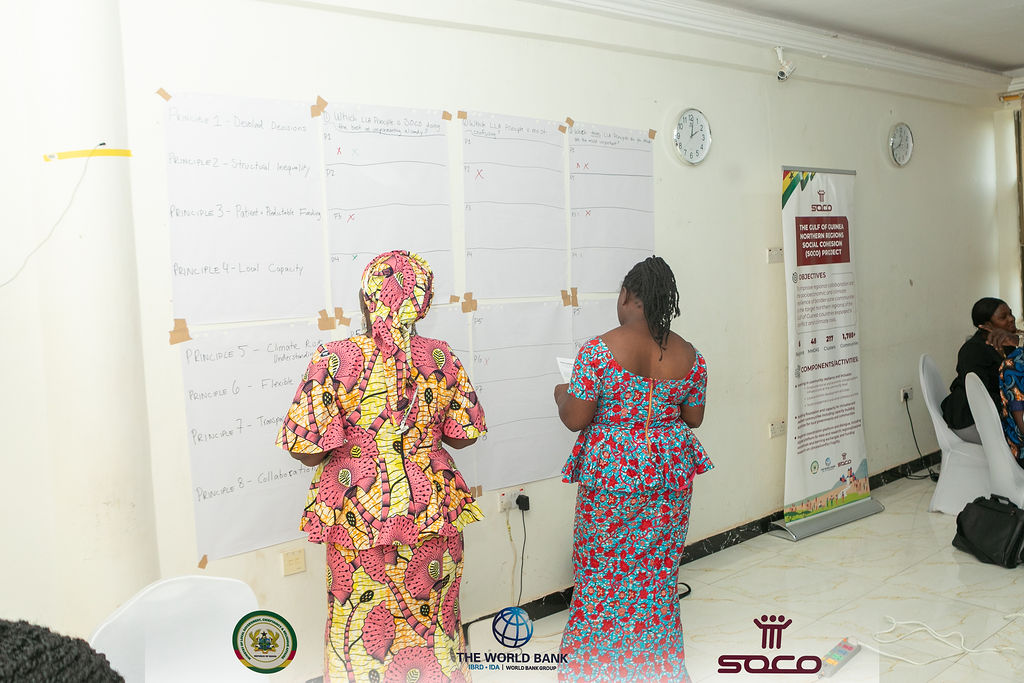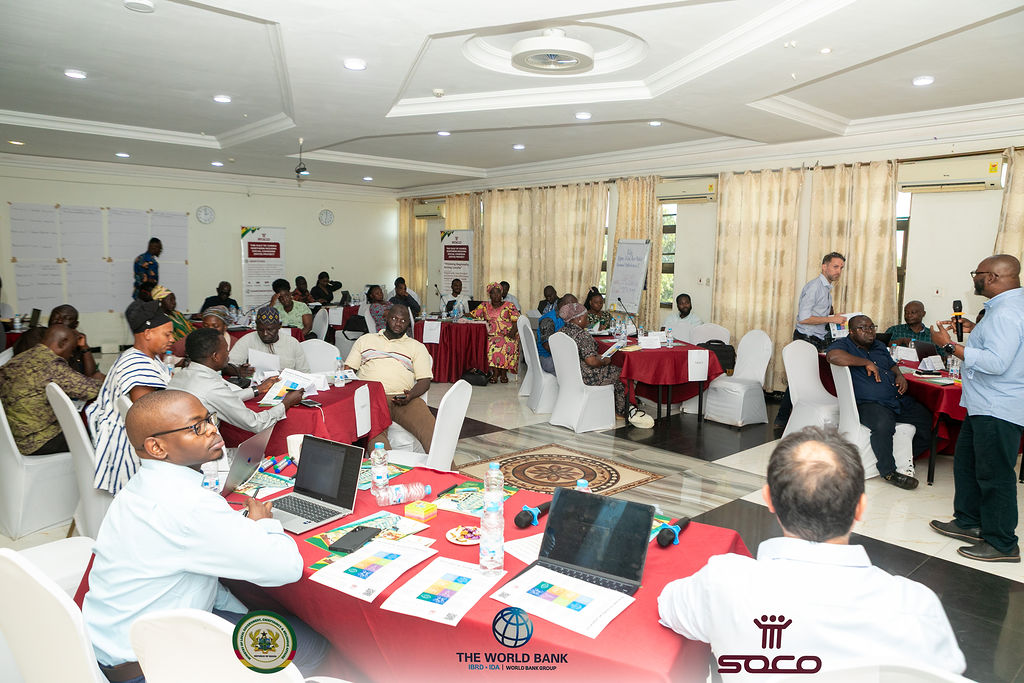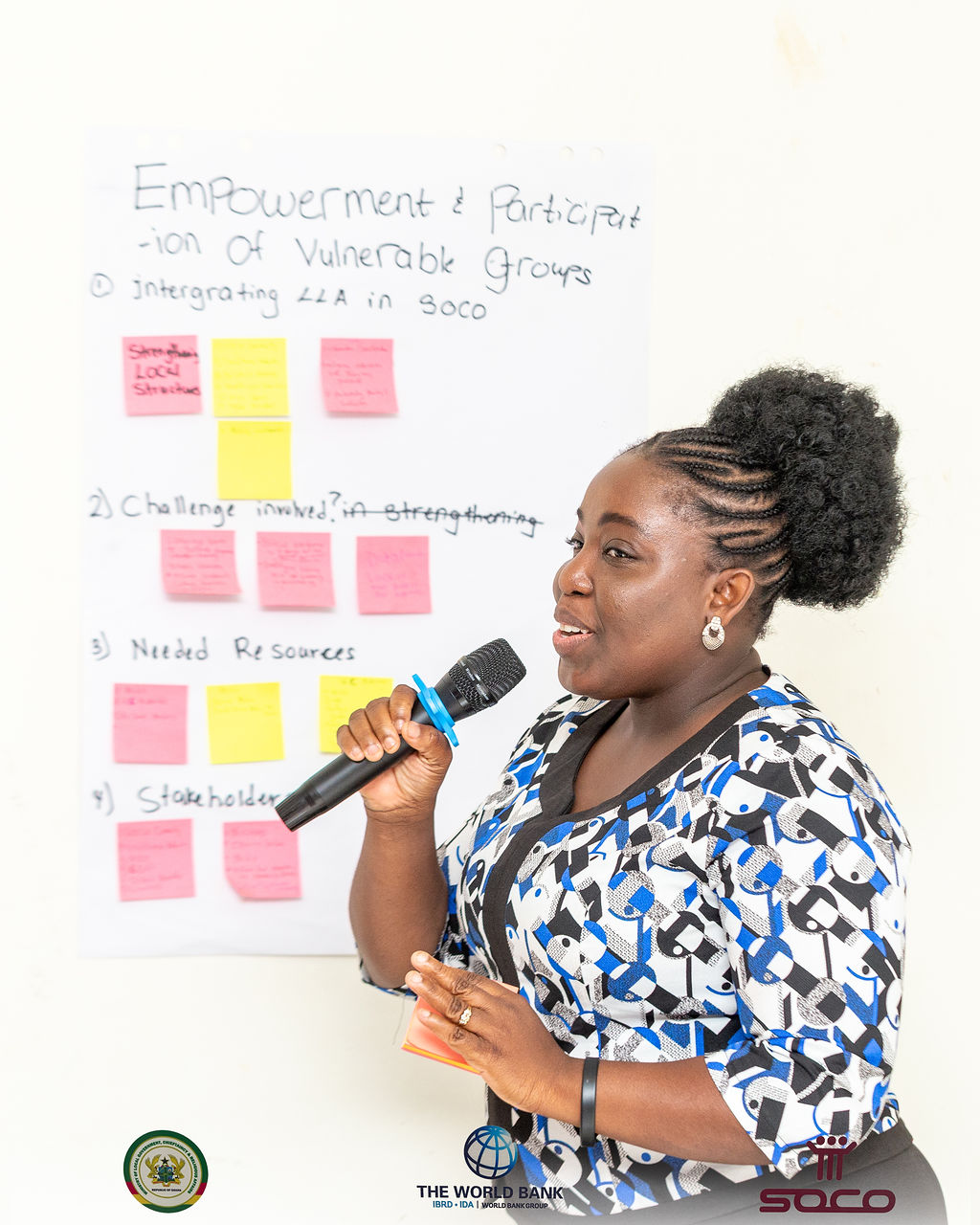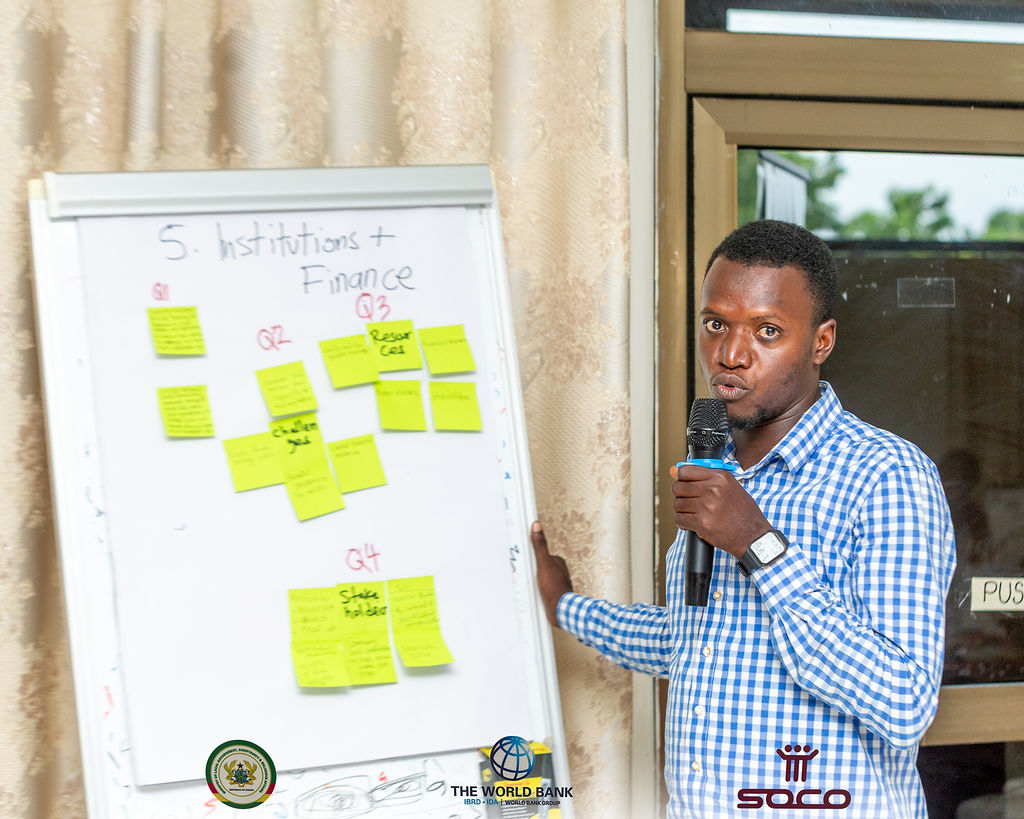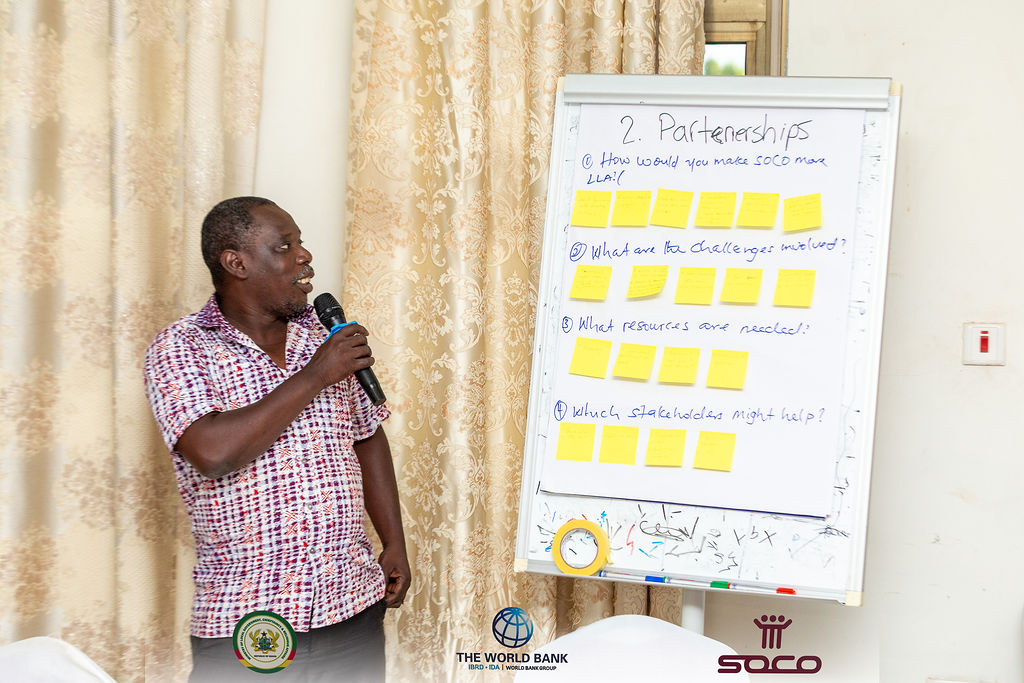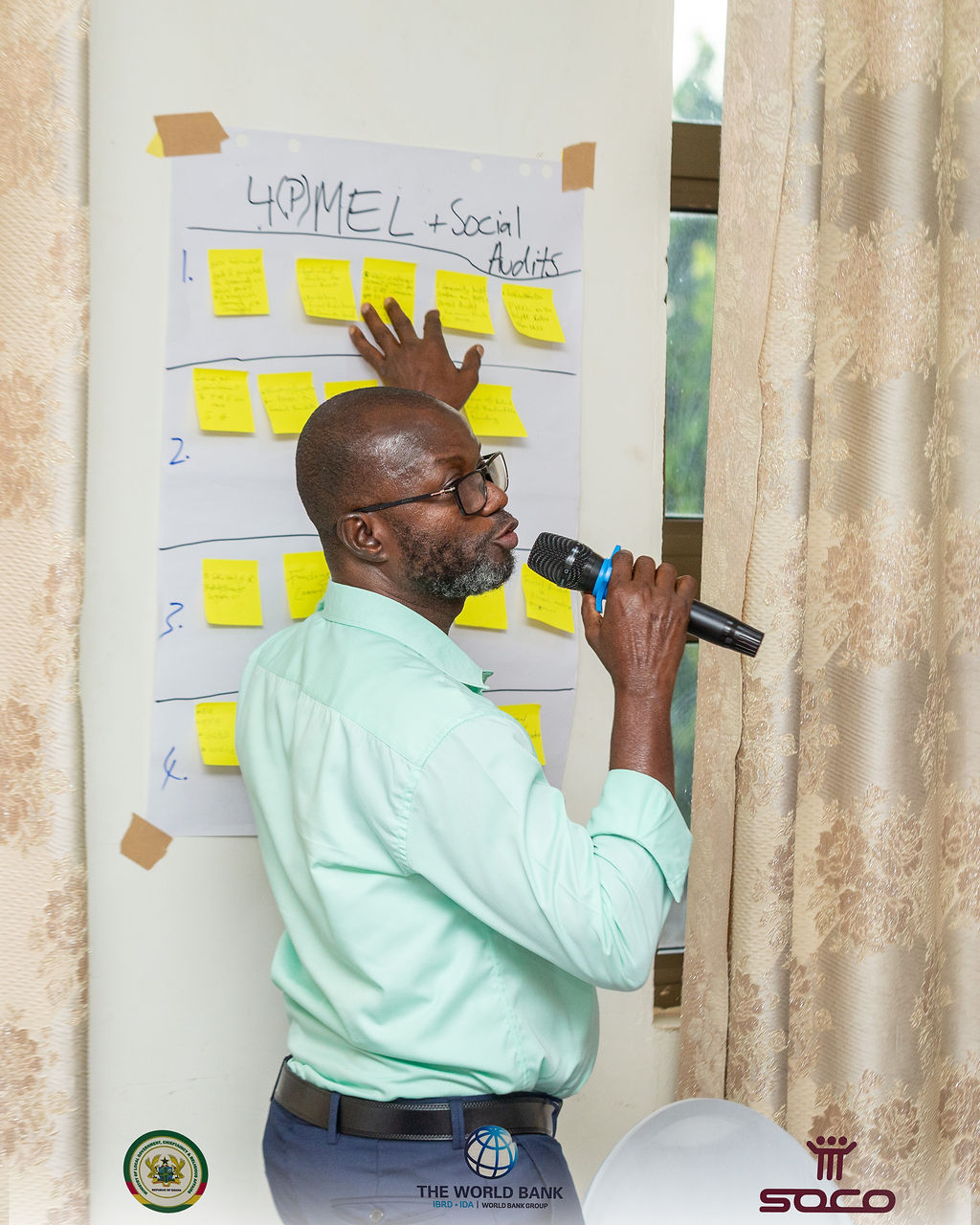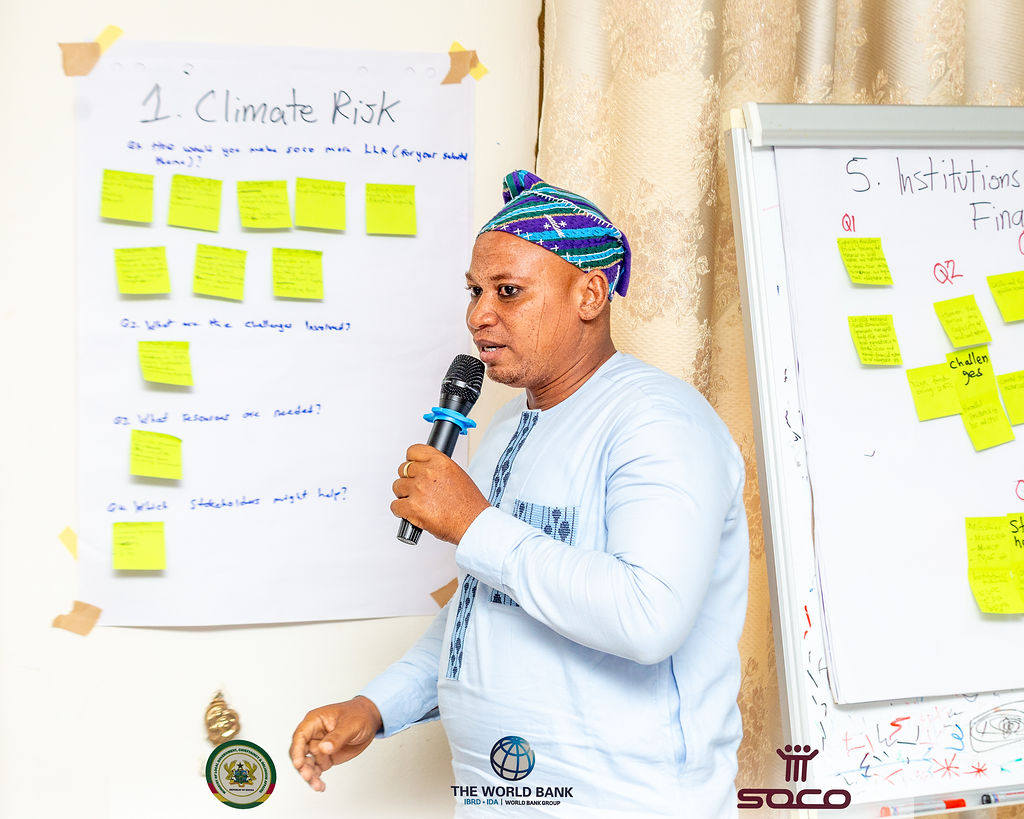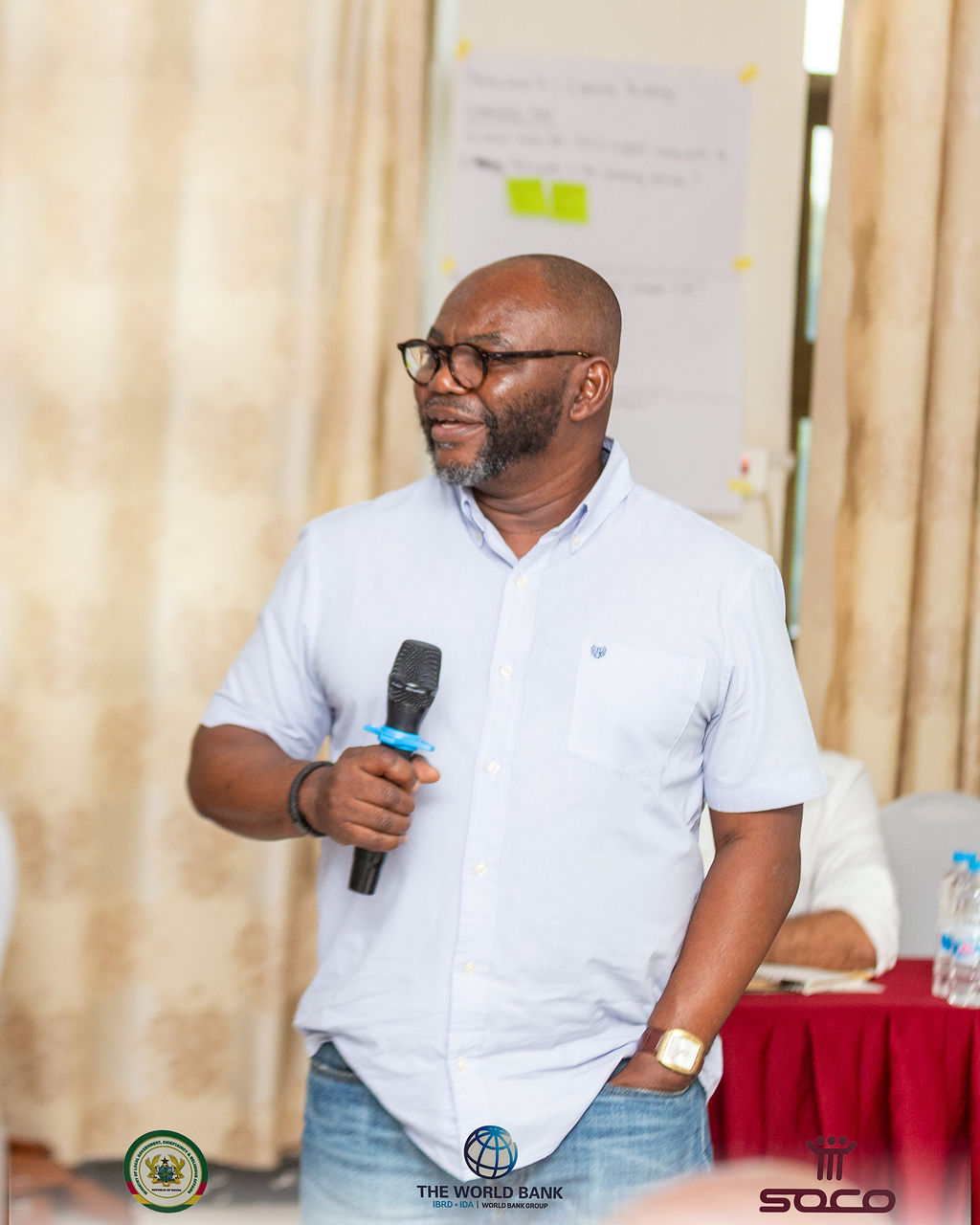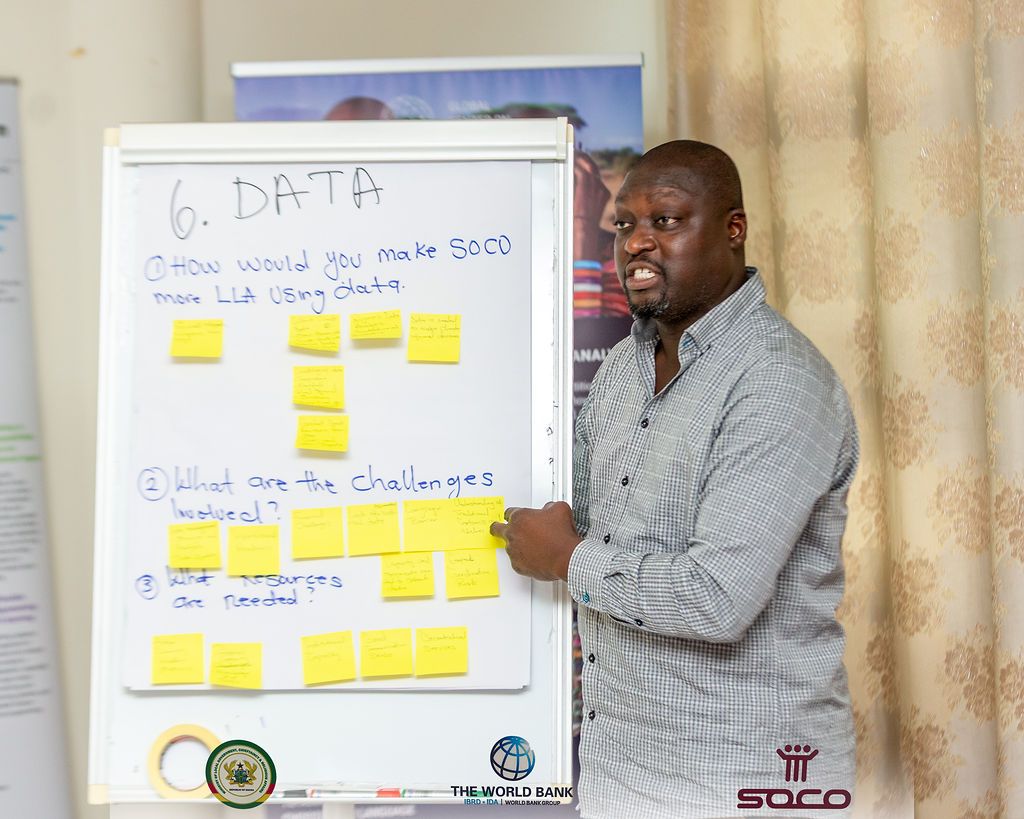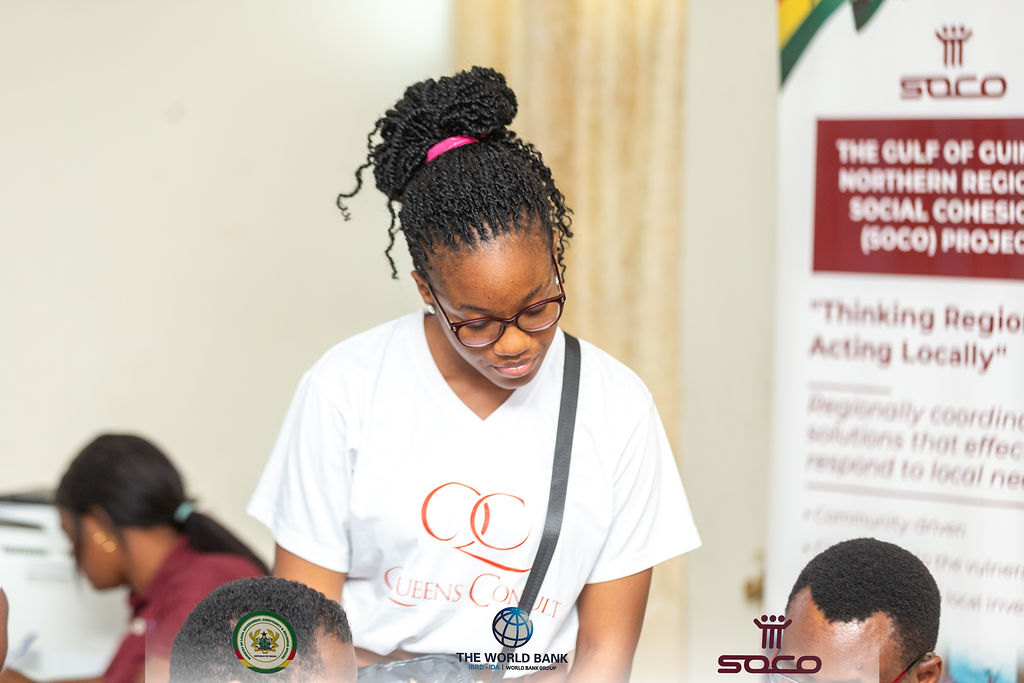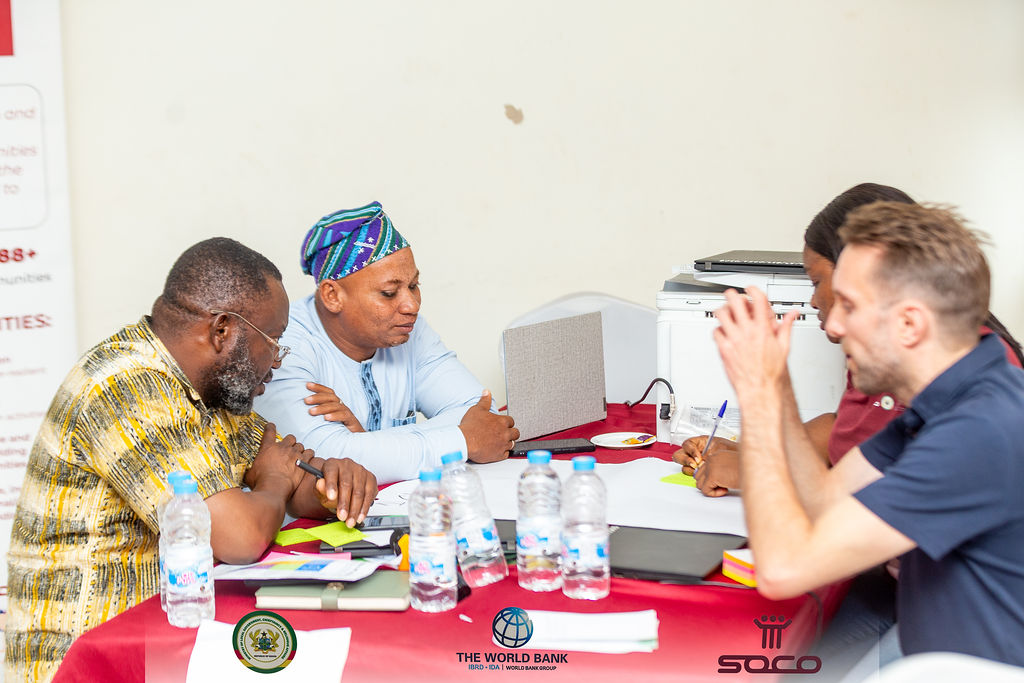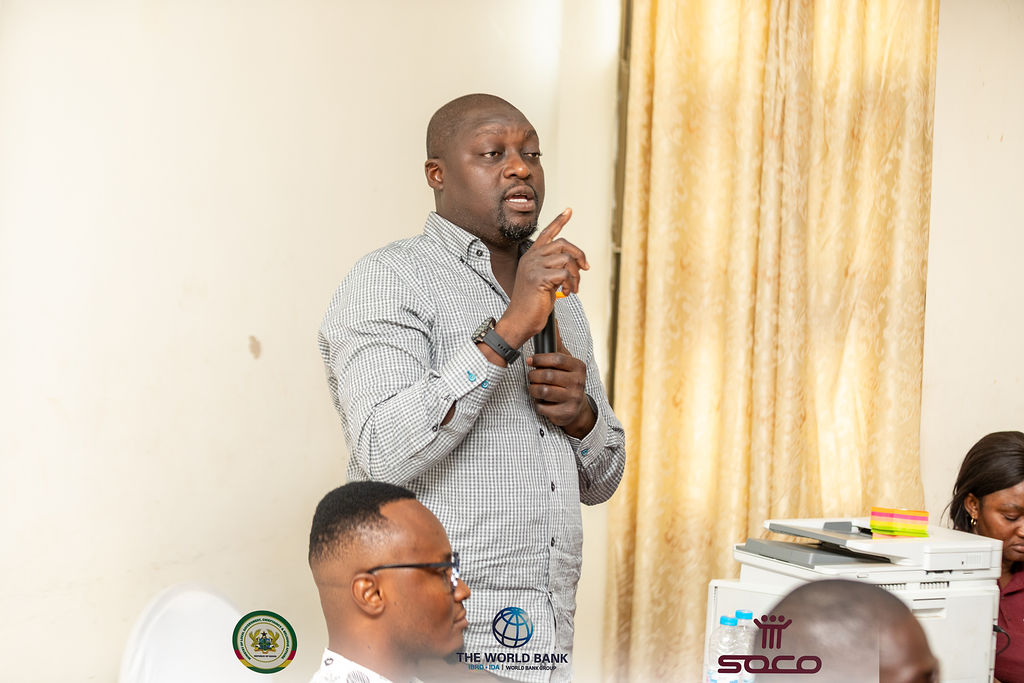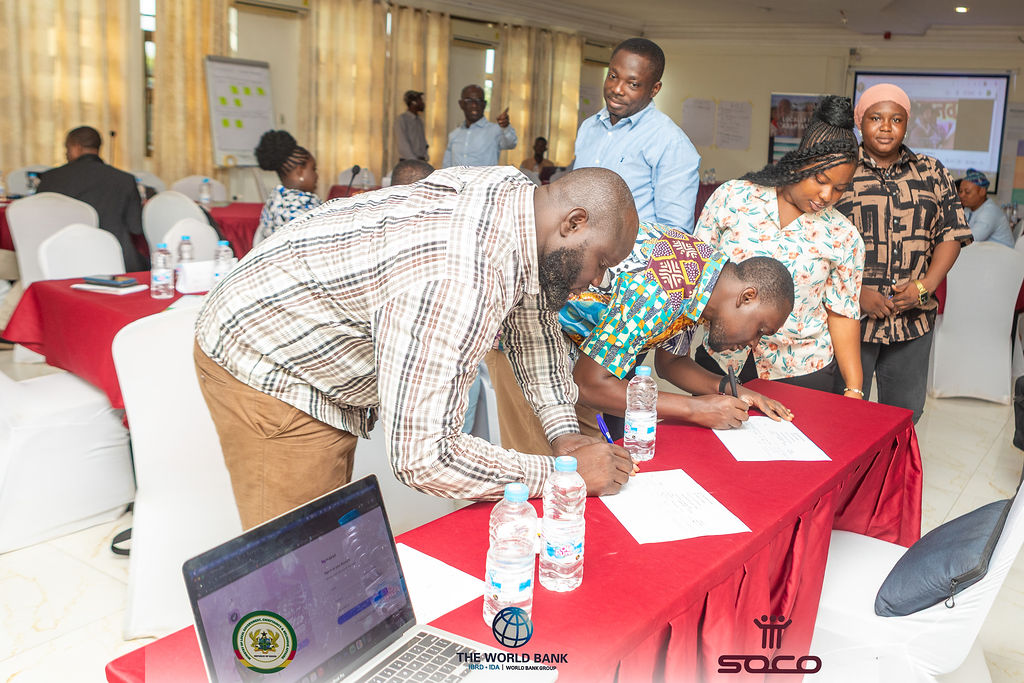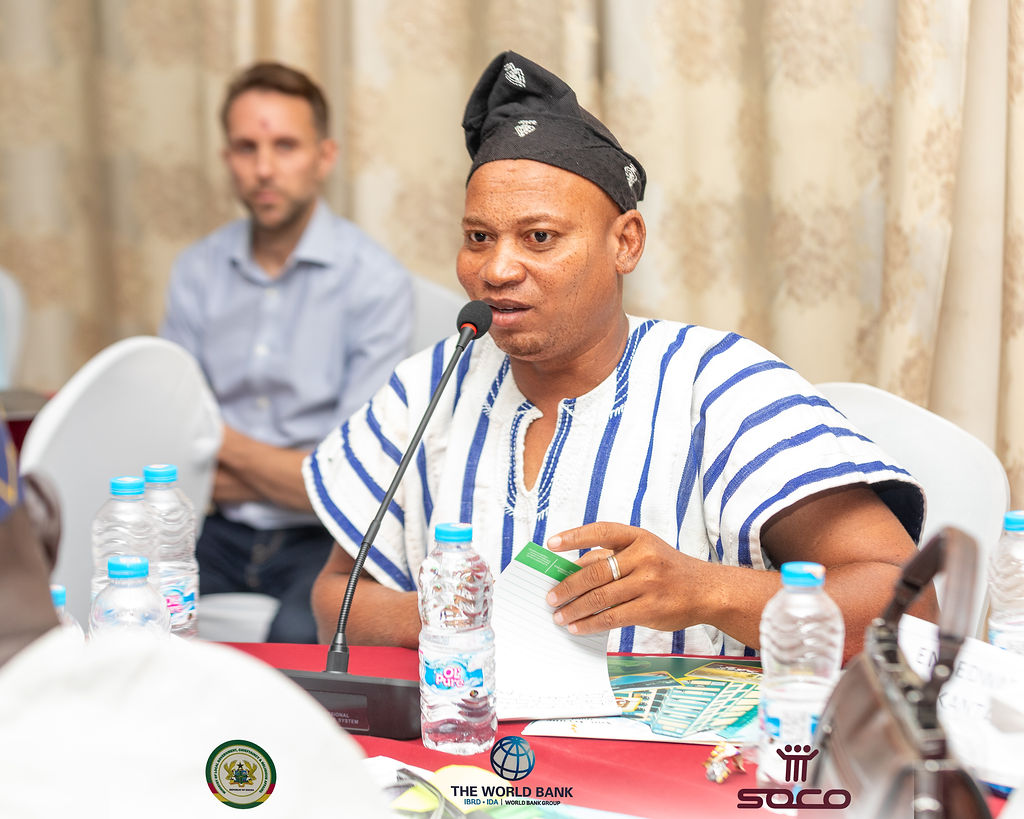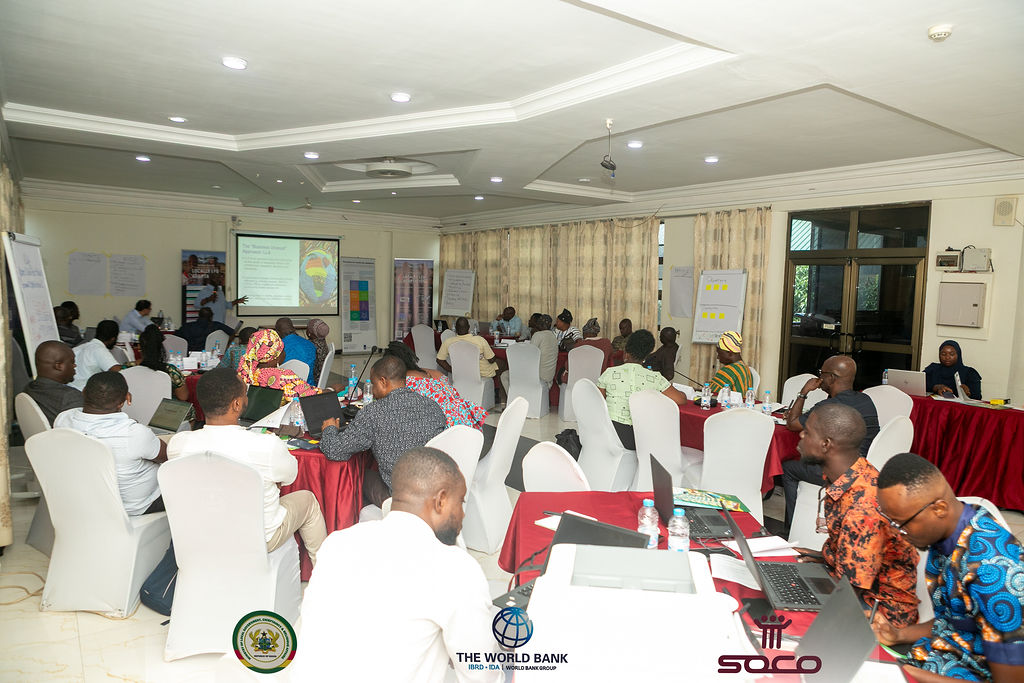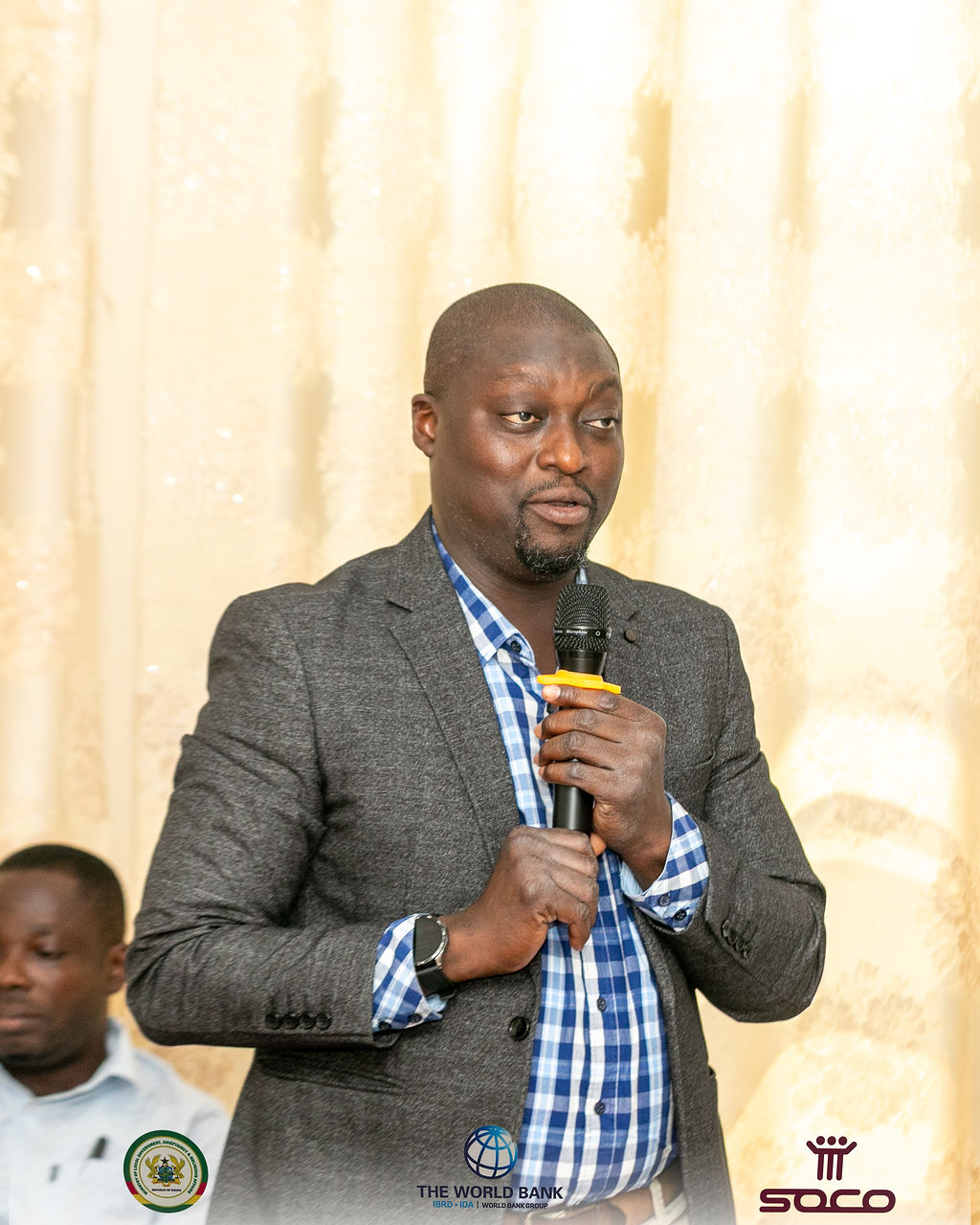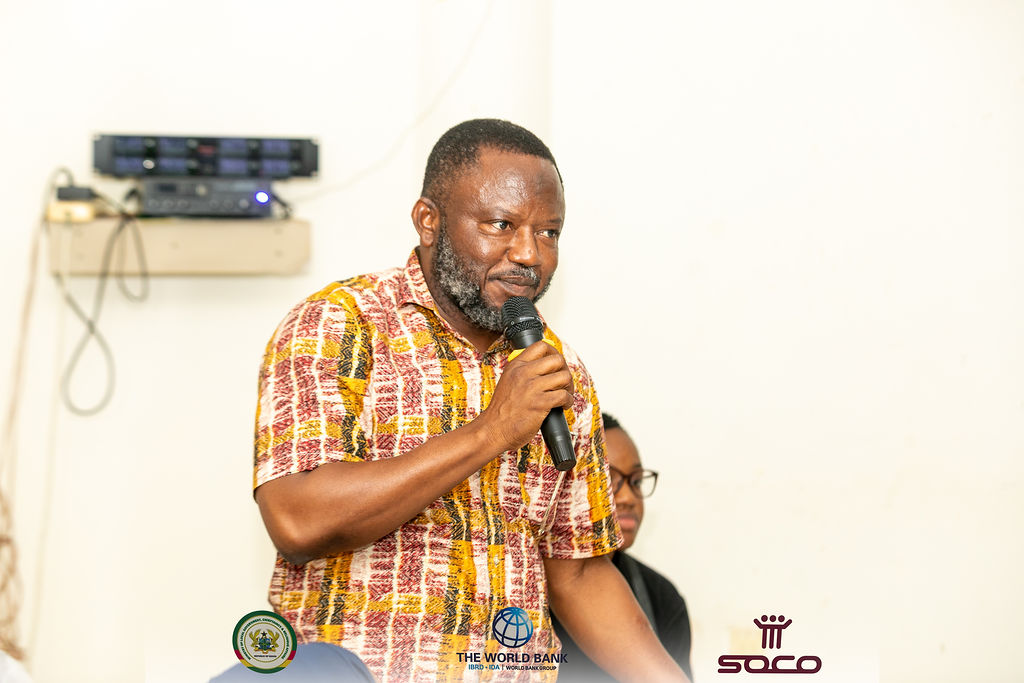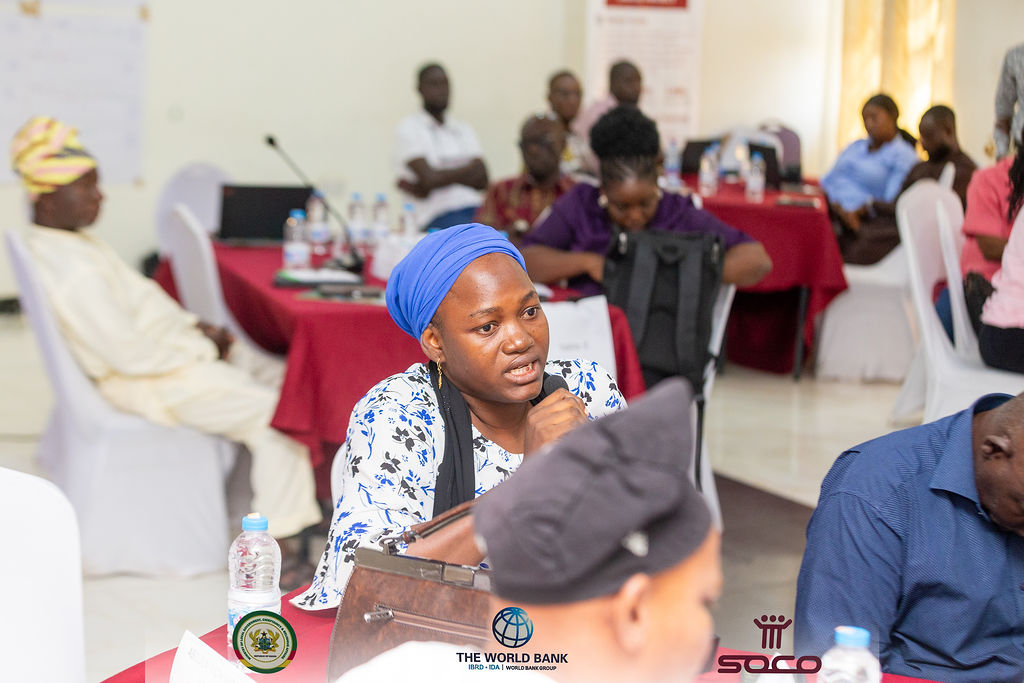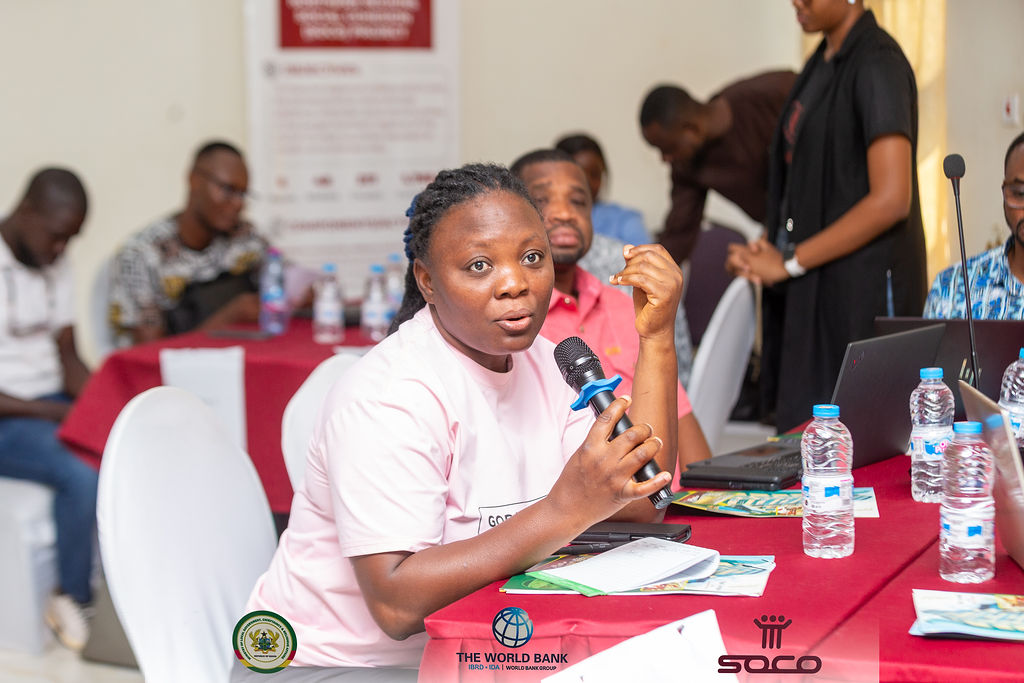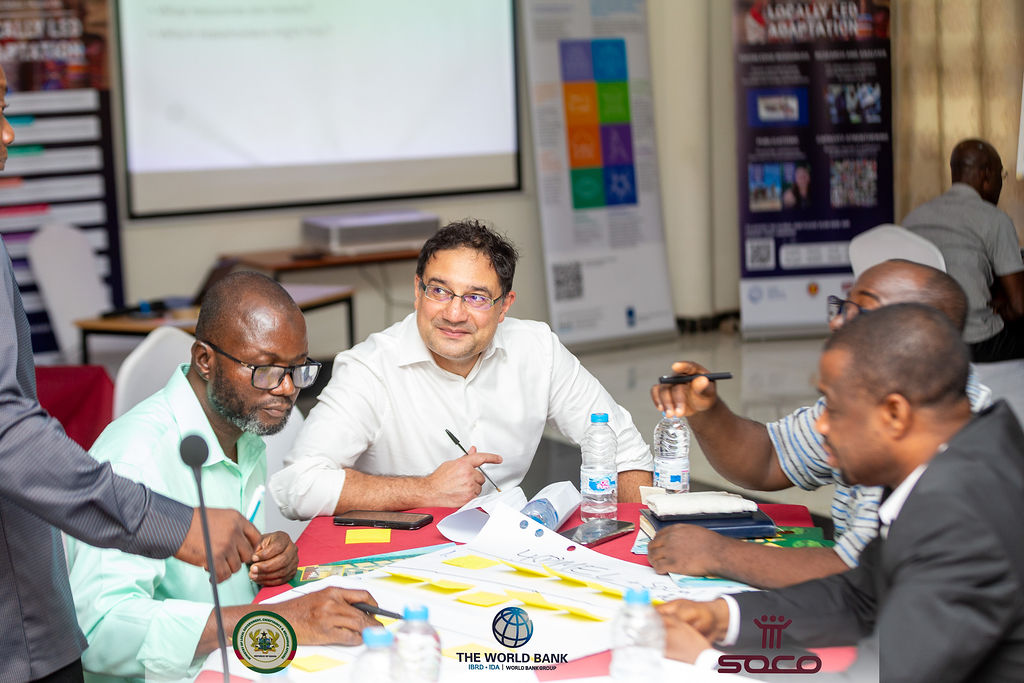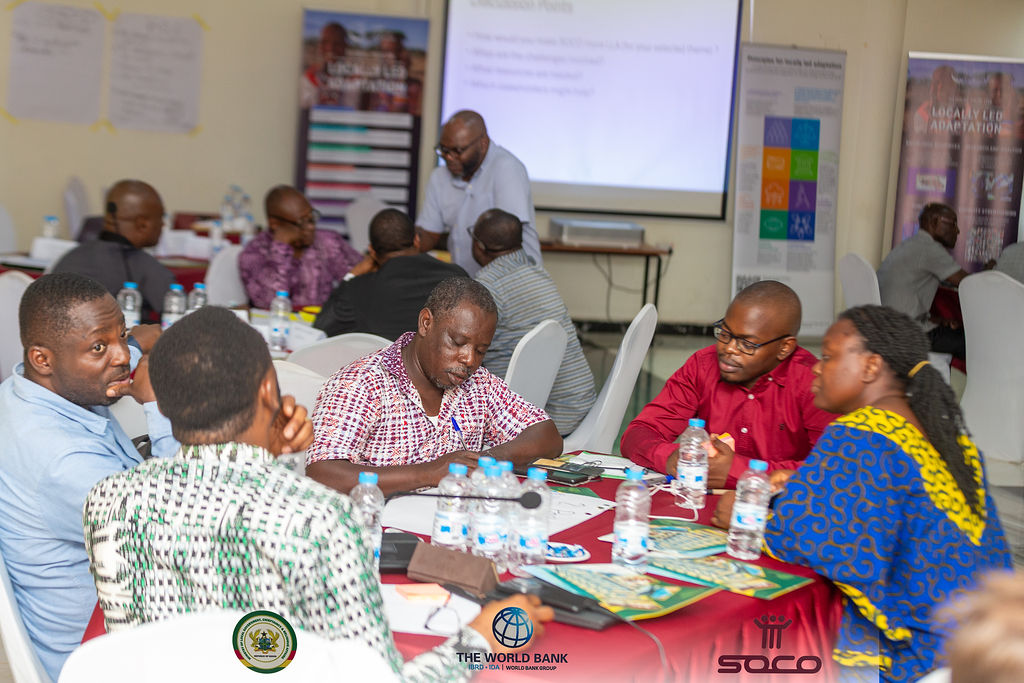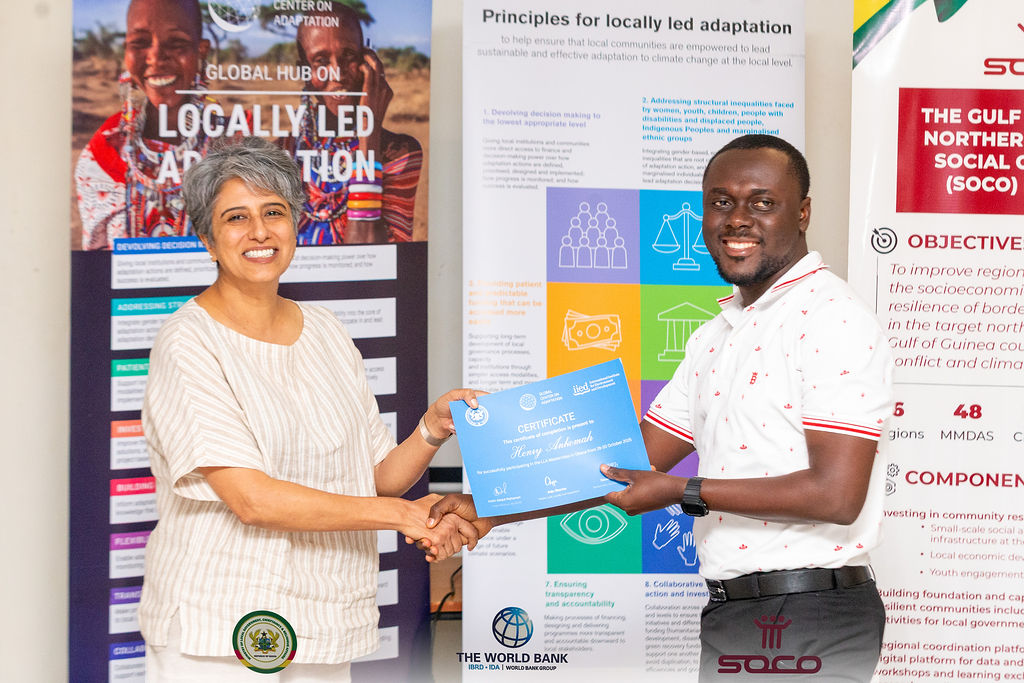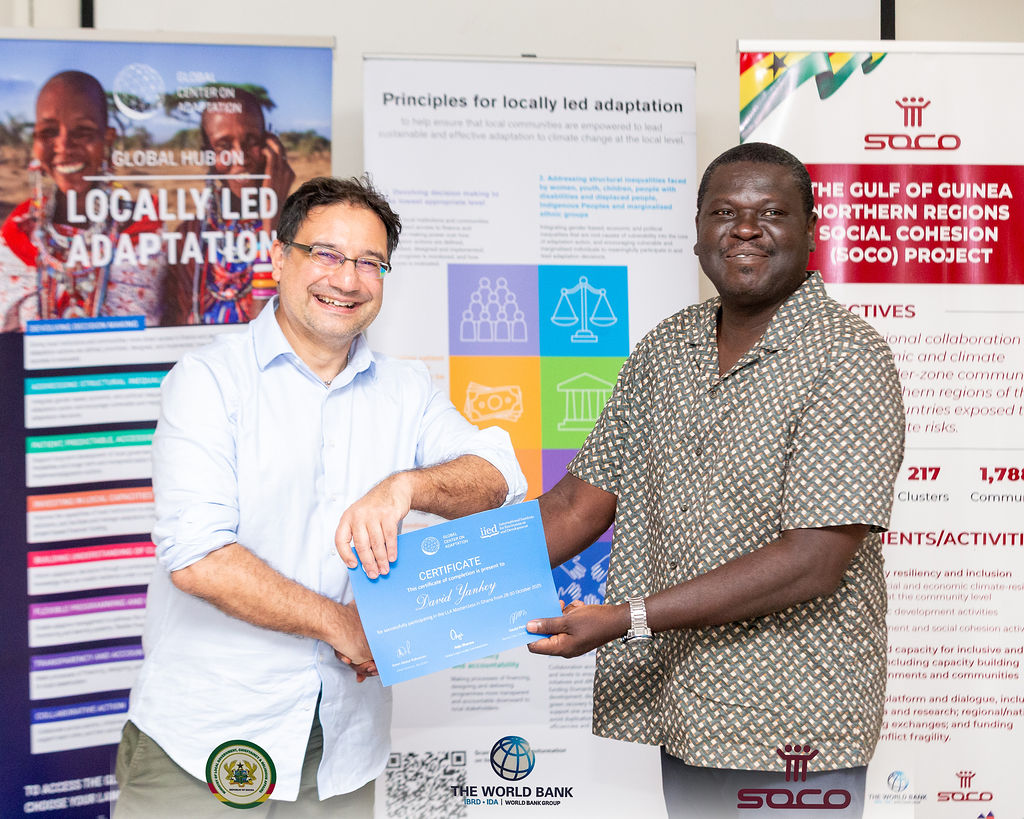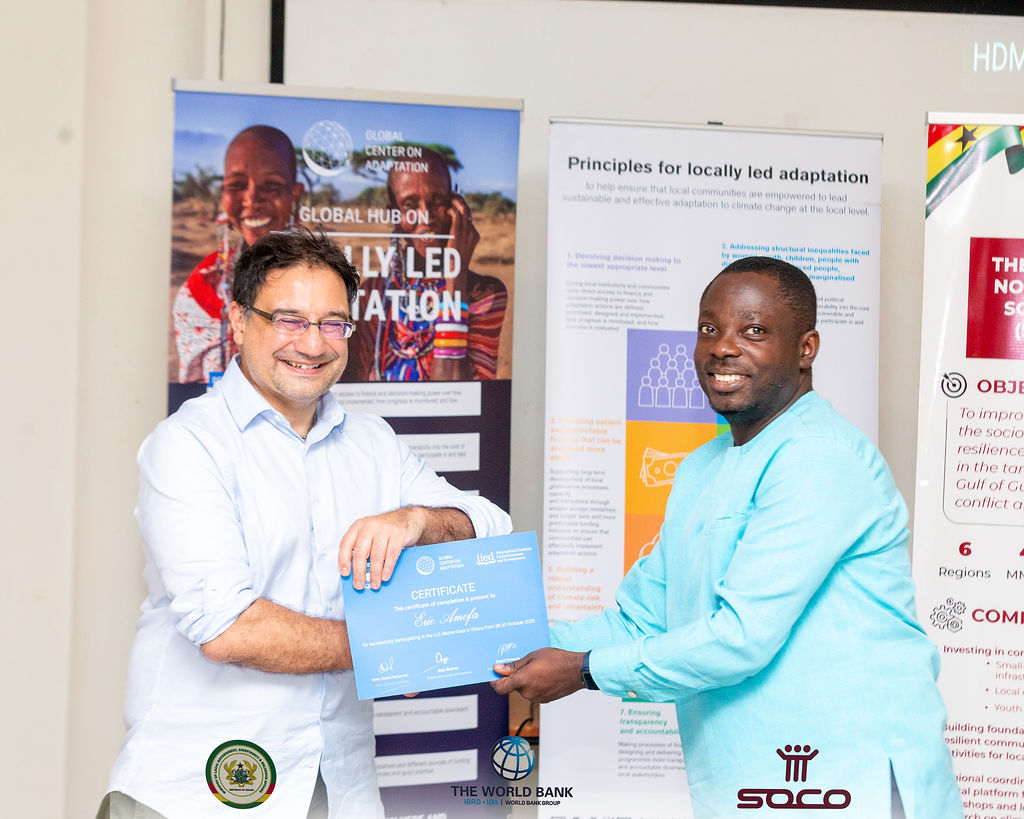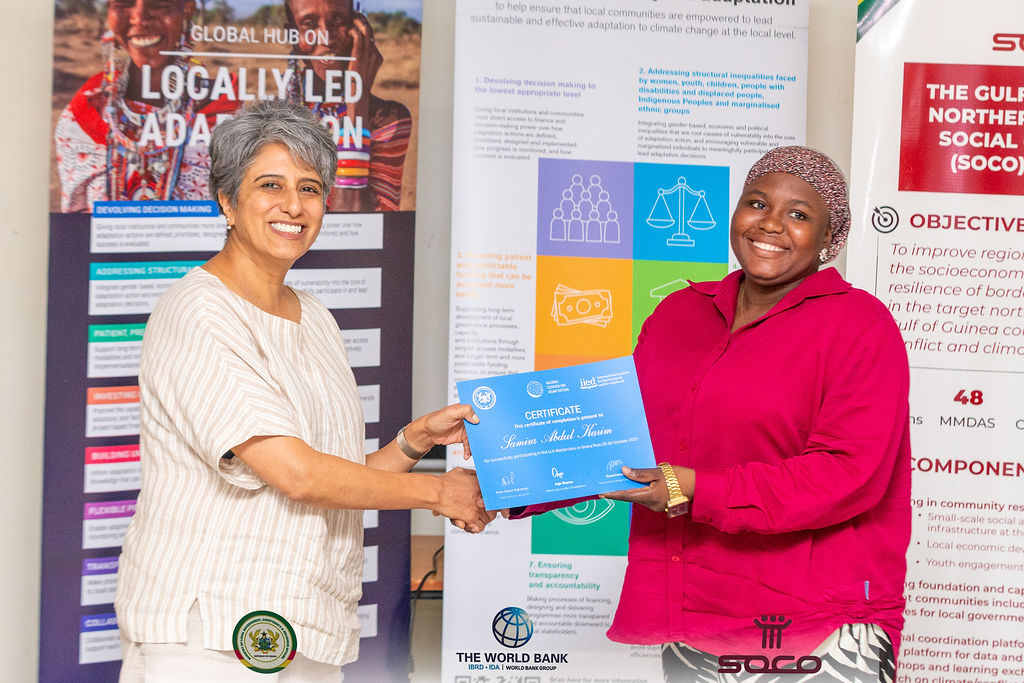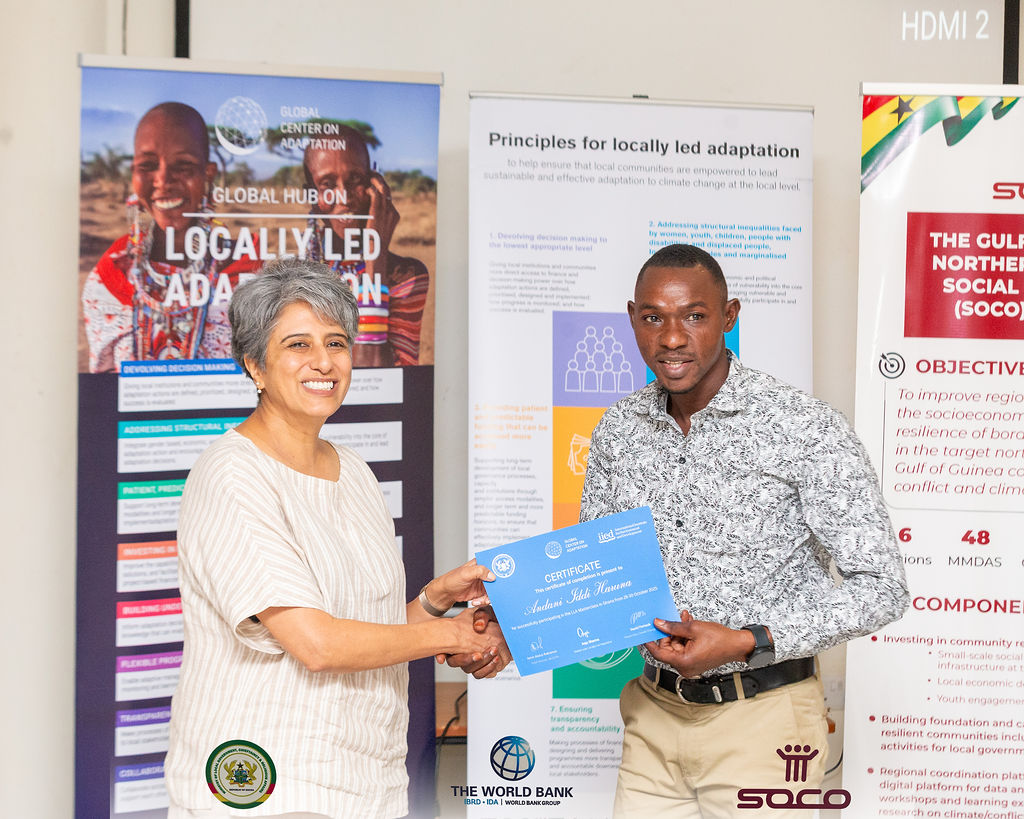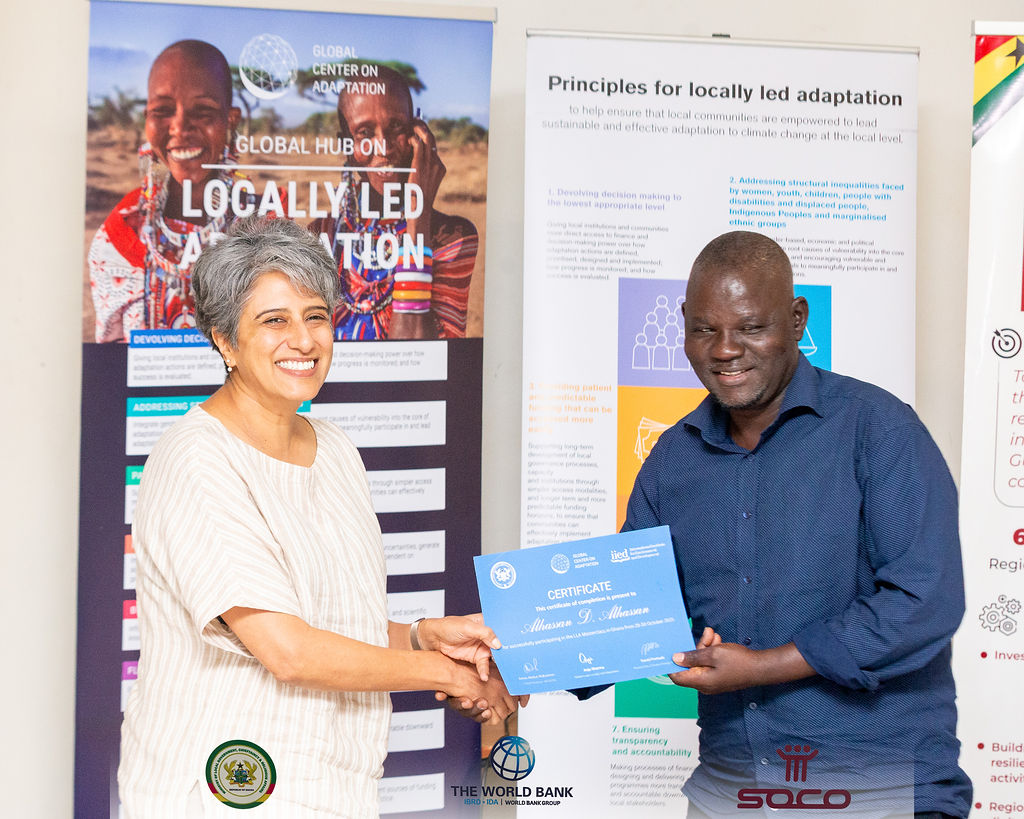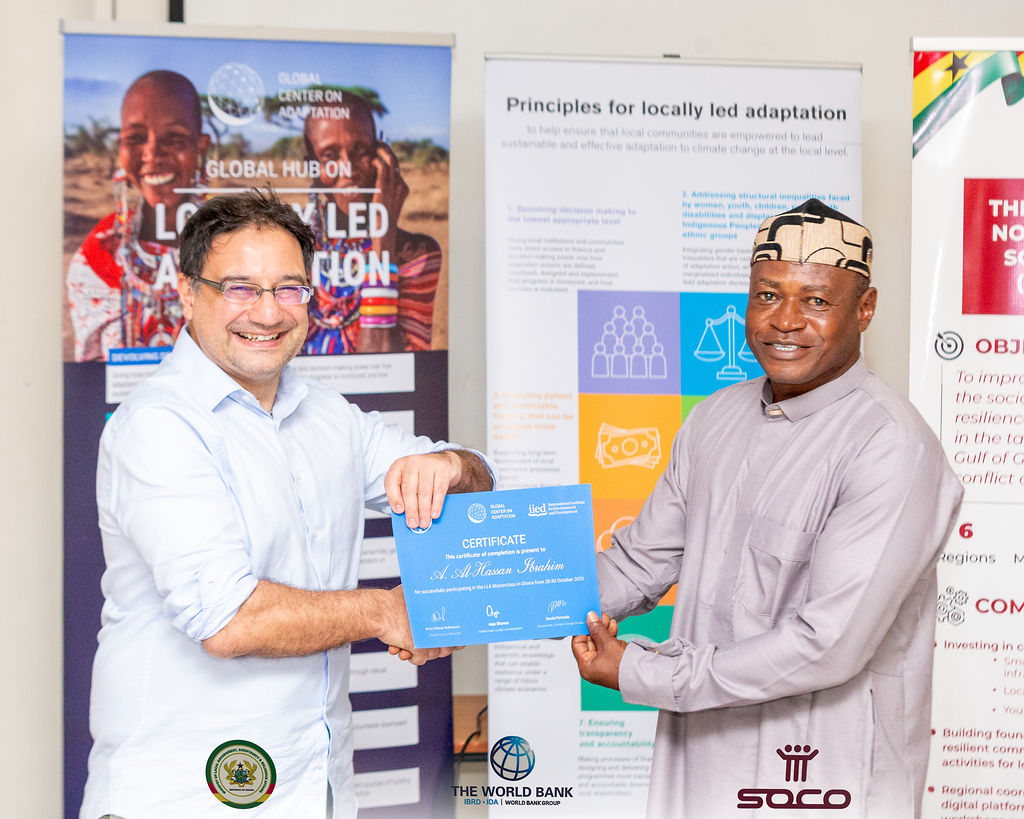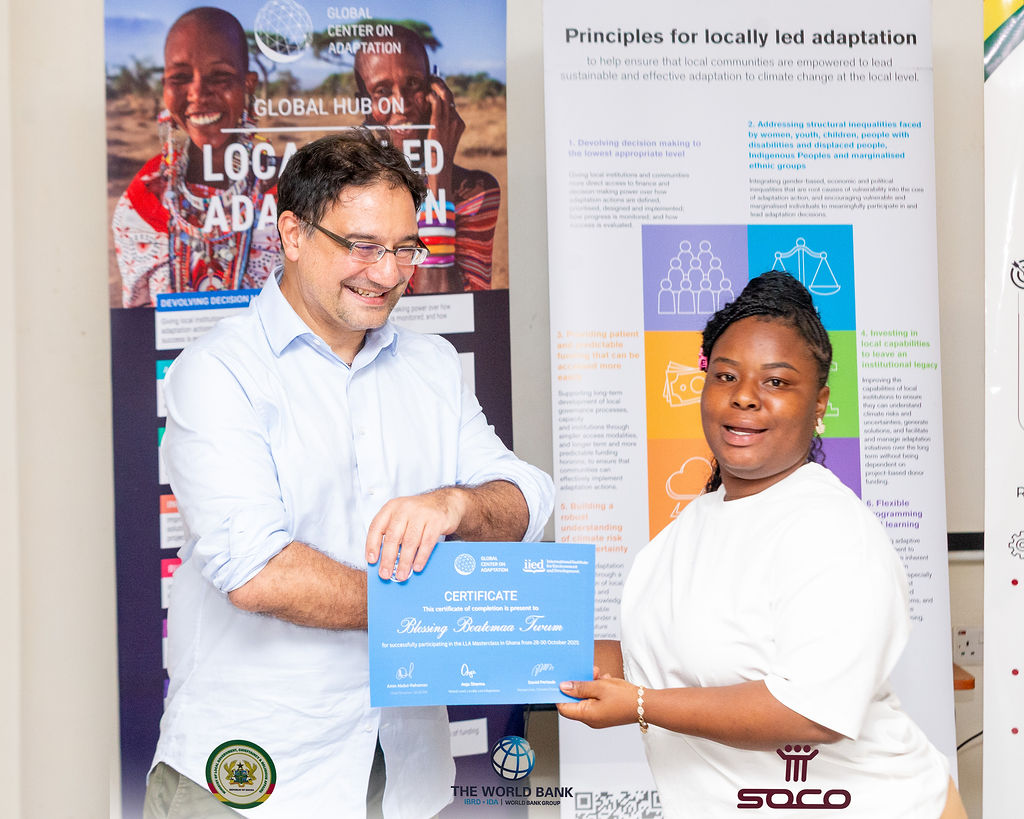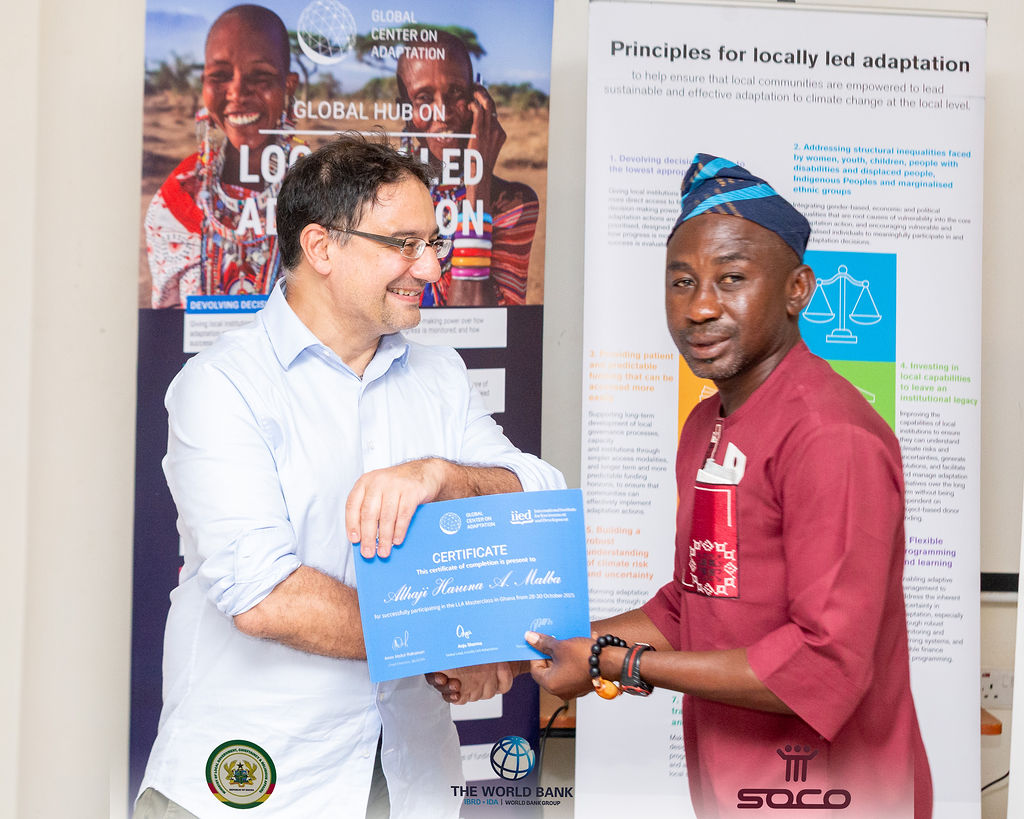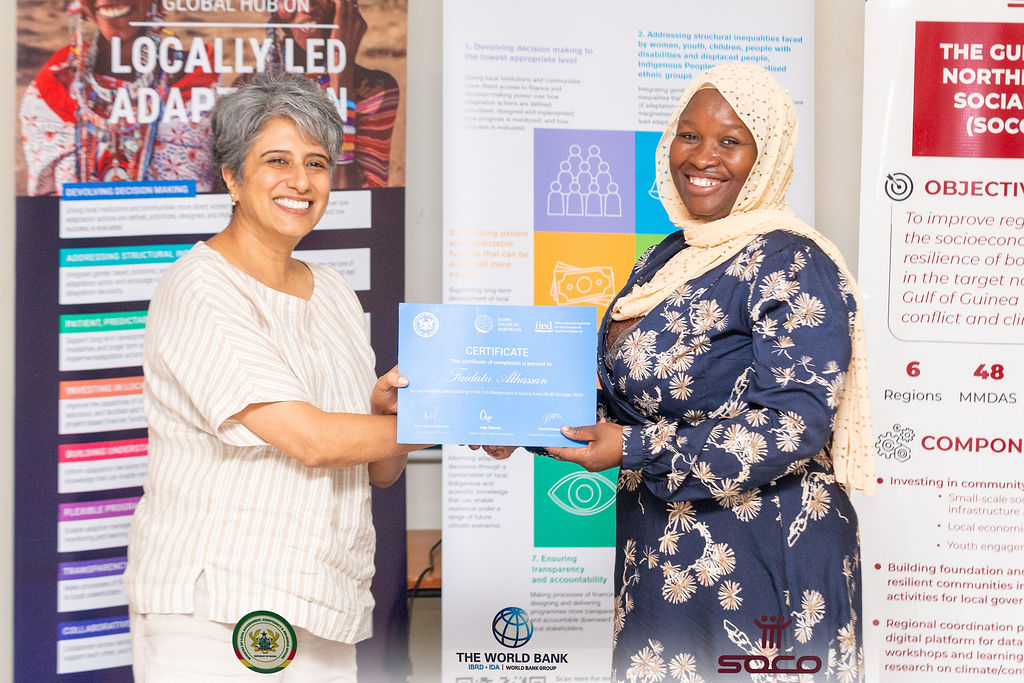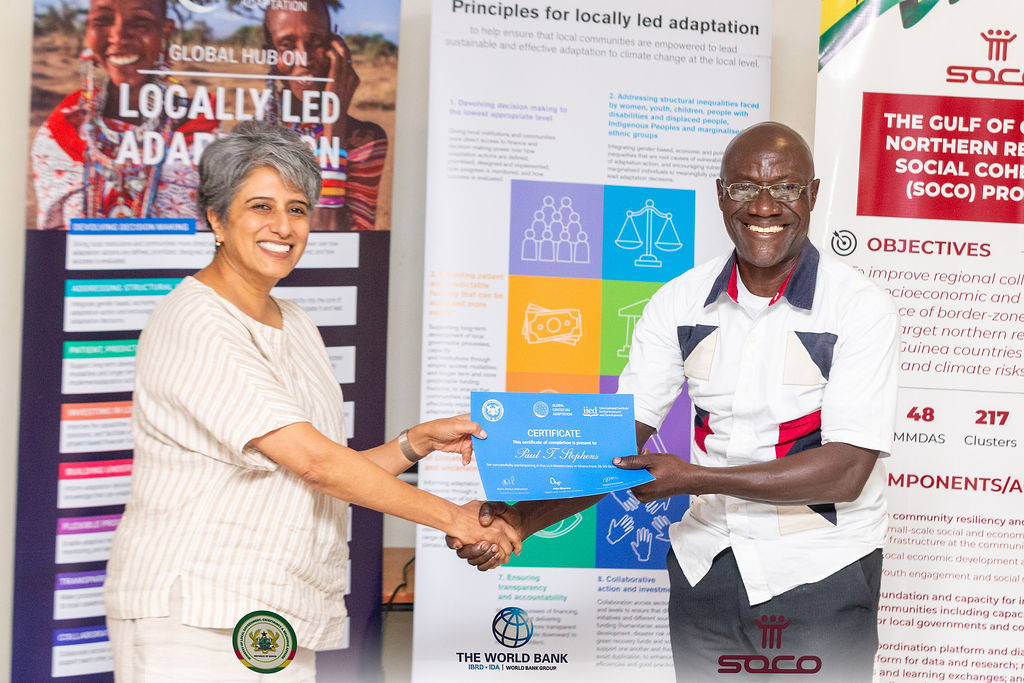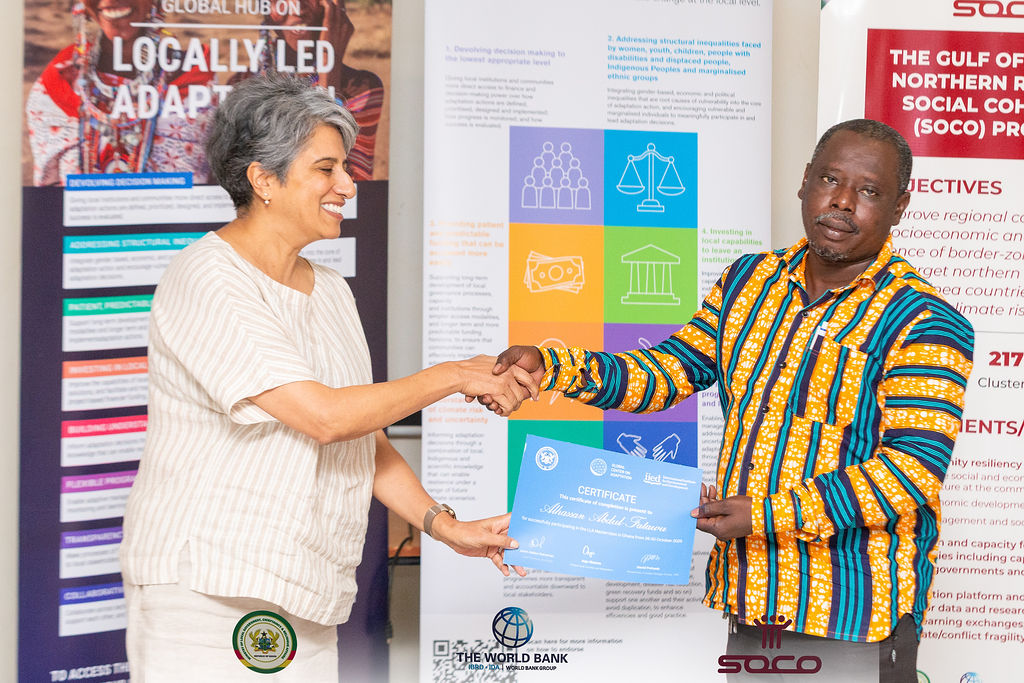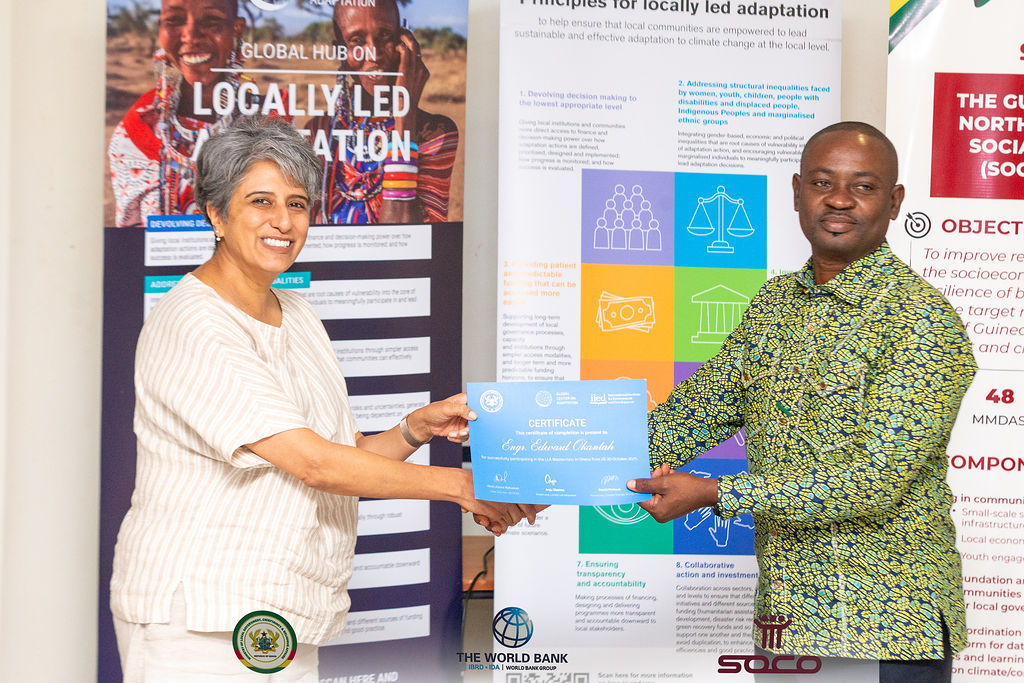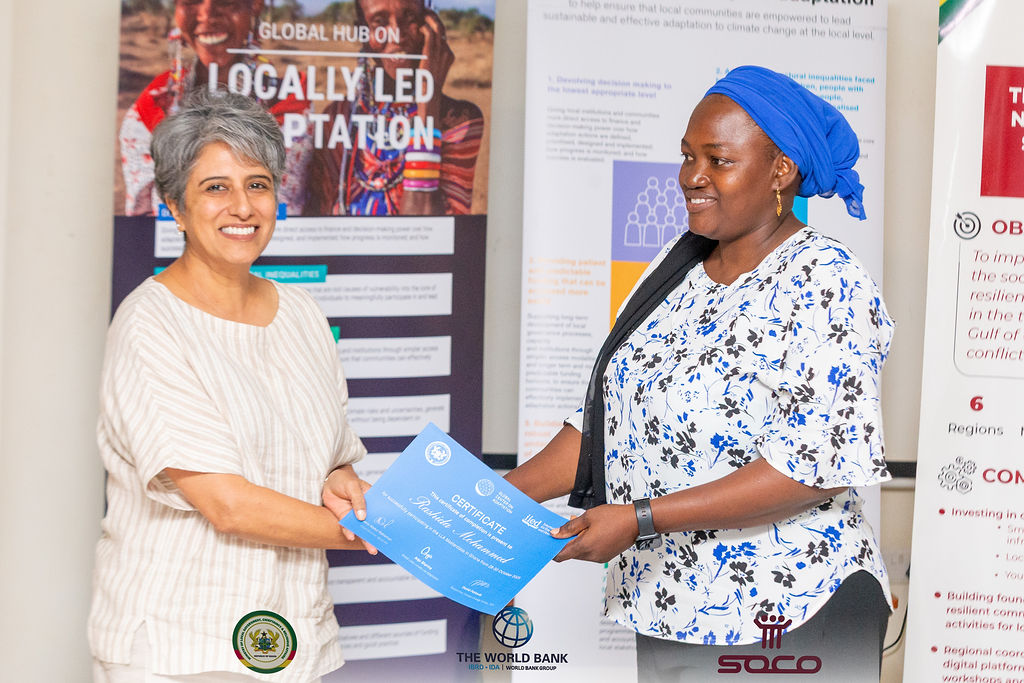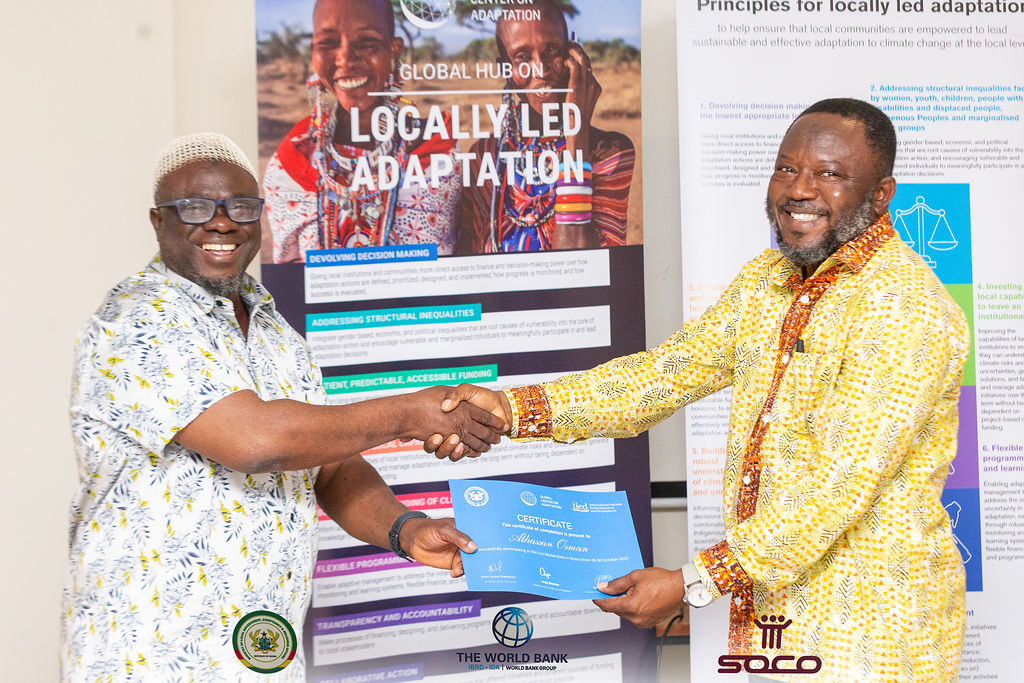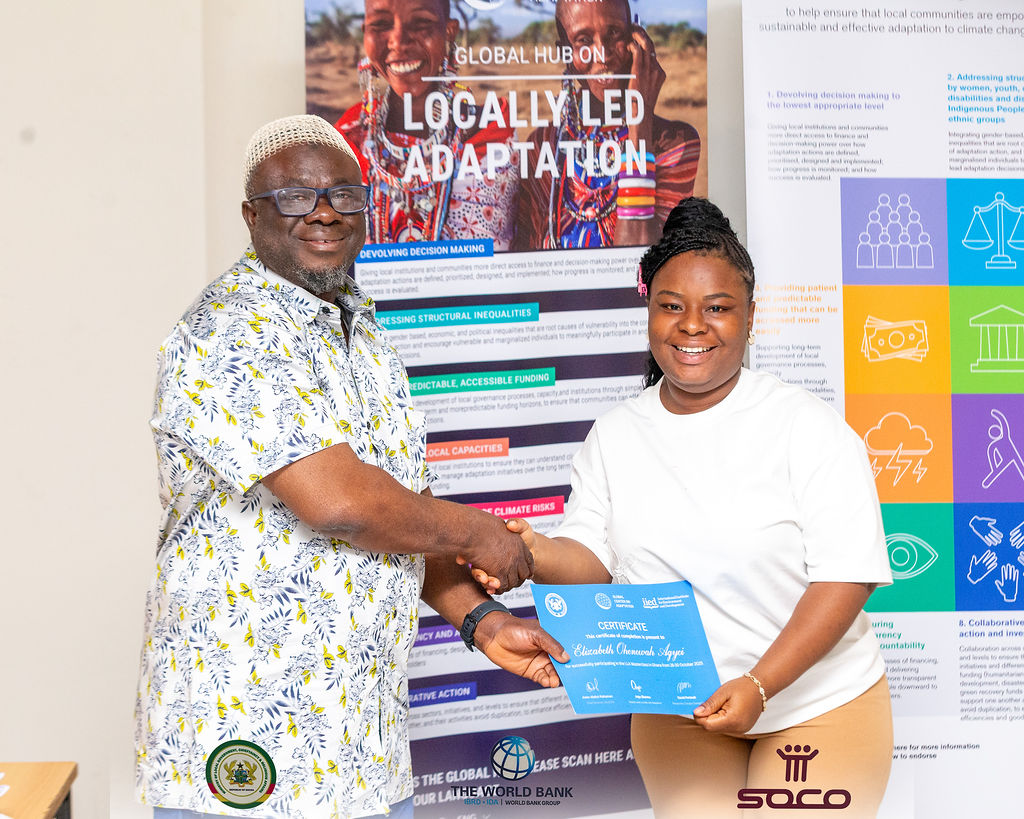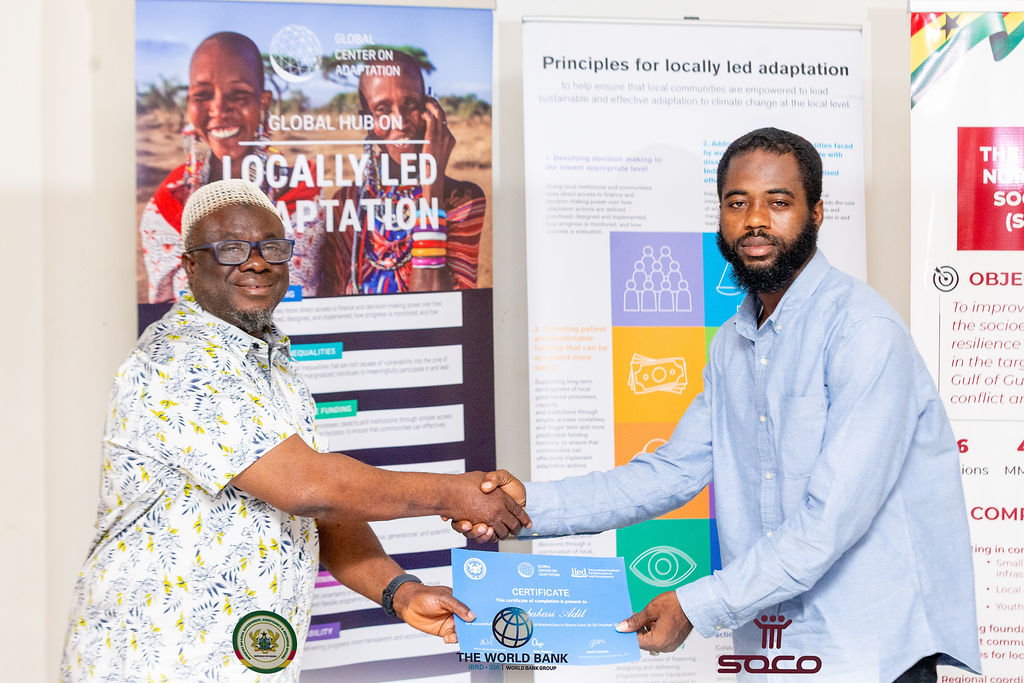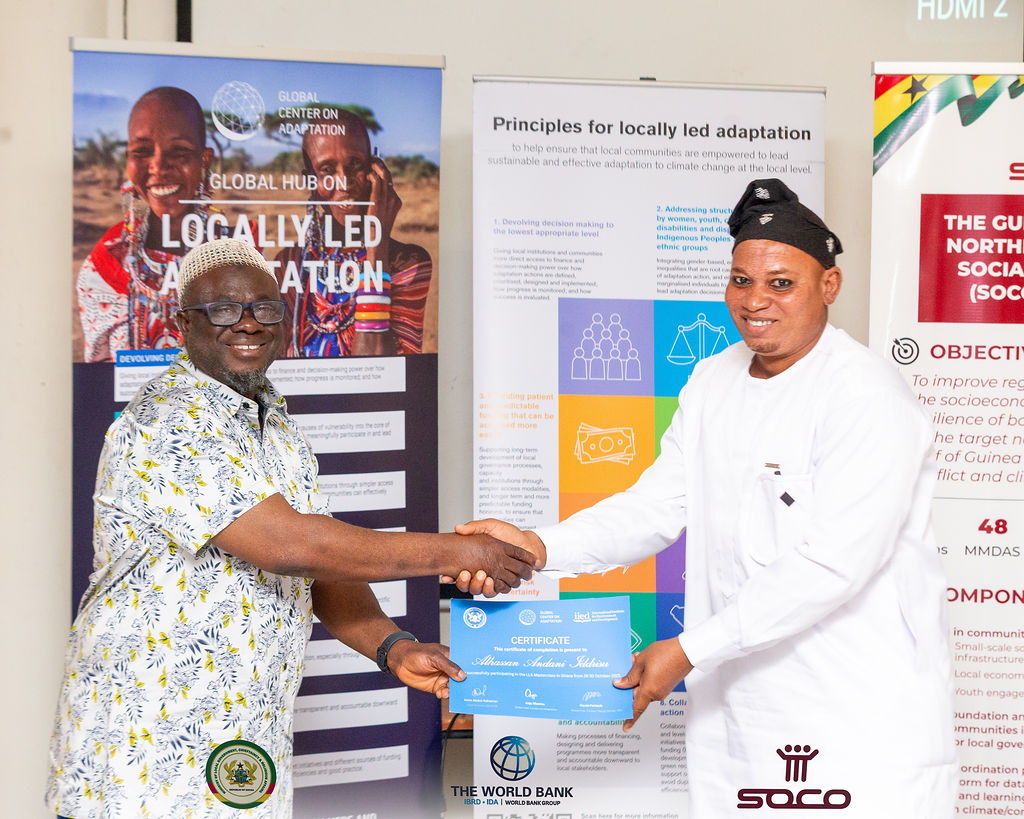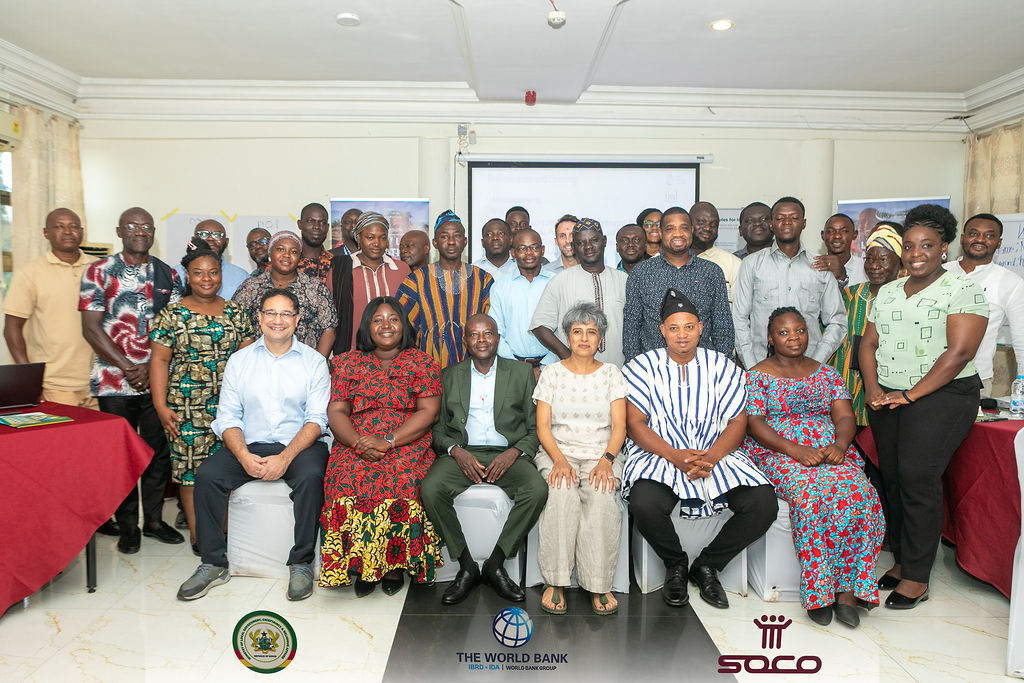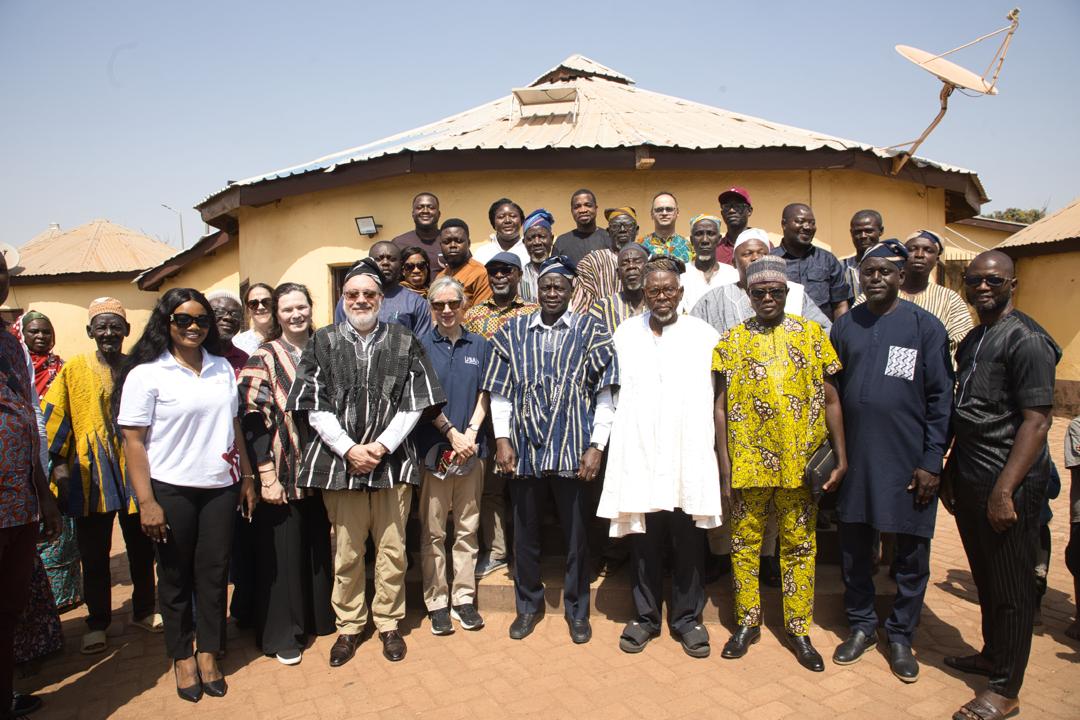The Gulf of Guinea Northern Regions Social Cohesion (SOCO) Project has convened a three-day training workshop on Locally Led Adaptation (LLA) to strengthen climate resilience and improve coordination between national and local institutions. The session, held from 28th to 30th October 2025, brought together technical officers from the Ministry of Local Government, Chieftaincy and Religious Affairs (MLGCRA), National Development Planning Commission (NDPC), Environmental Protection Agency (EPA), NADMO, GMET, MoFA, Regional Coordinating Councils, and the Yendi Municipal Assembly, alongside SOCO PIU representatives.
Organised in collaboration with the Global Centre on Adaptation (GCA), the World Bank, and the International Institute for Environment and Development (IIED), the workshop focused on embedding locally led adaptation in Ghana’s decentralised planning system through practical application within the SOCO framework.
Speaking at the opening, Sumaila Ewontomah Abudu, Chief Director of the Northern Regional Coordinating Council, noted that the Northern Region continues to face growing climate challenges such as land degradation, drought, and erratic rainfall patterns. He reiterated the need for communities to lead climate solutions, adding that “adaptation is possible through local leadership and knowledge.”
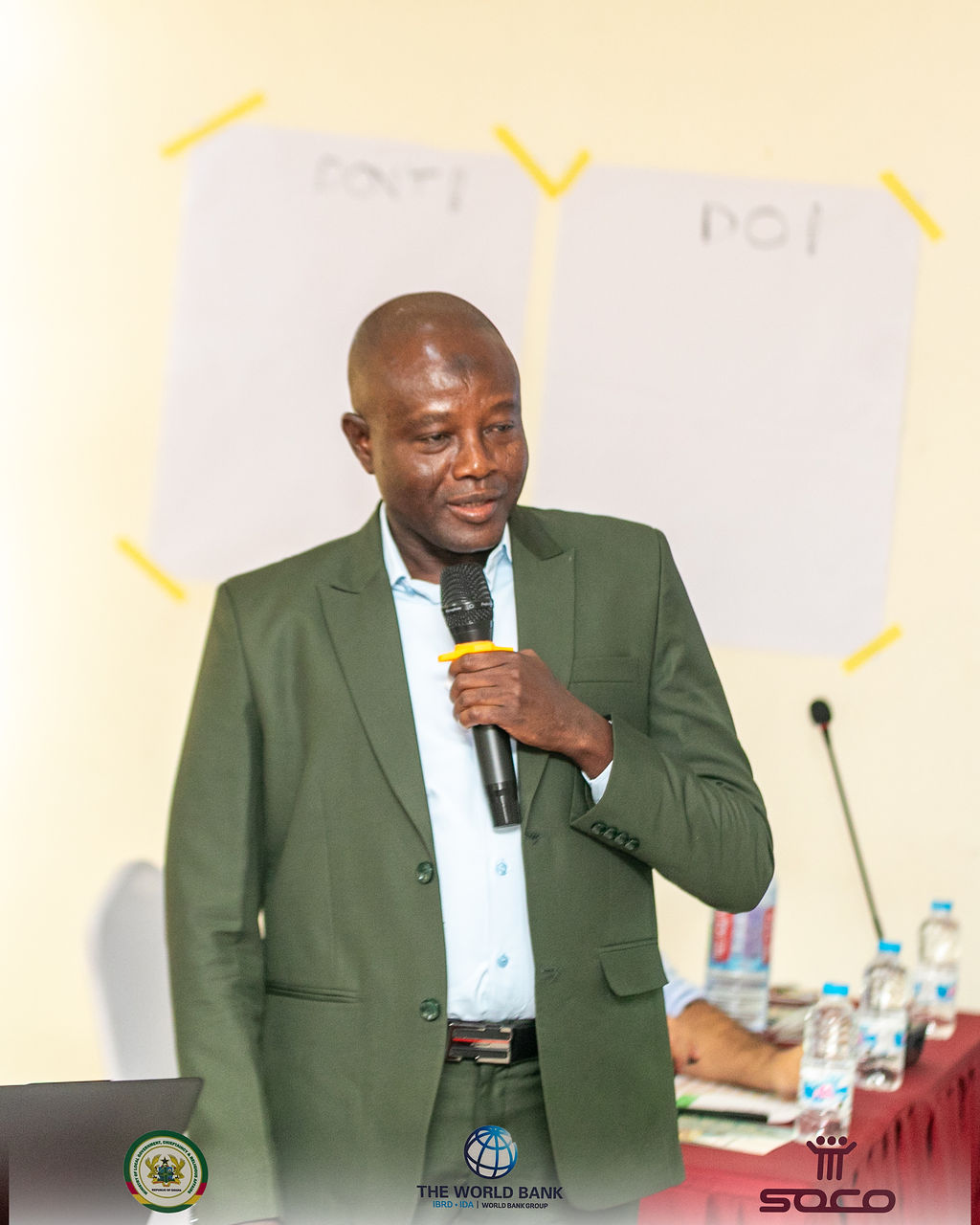
The training marked an important step toward integrating climate adaptation principles directly into the Community Driven Development (CDD) approach used by the SOCO project. Participants explored how climate adaptation actions can be identified and financed through district plans and composite budgets, ensuring that community priorities move from consultation to implementation.
Over the three days, participants engaged in practical exercises that mapped how adaptation decisions are made from the community to the national level, identified the actors involved, and discussed how monitoring systems can be simplified and locally owned. Sessions also included hands-on group work to align LLA with Ghana’s upcoming Medium-Term Development Plans (2026–2029), an approach expected to ensure funding for climate actions at the local level.
According to Porekuu Peter Francis Xavier, Principal Planning Analyst at the NDPC, the workshop came at a critical time:
“If adaptation actions are captured in the Plan, there will be a budget. Our goal is to ensure that every district can reflect climate priorities within its development plan.”
For the SOCO Project, the training represented a shift from policy discussions to practical action. Participants developed a shared vision for integrating LLA into Ghana’s decentralised governance framework, identifying opportunities, institutional roles, and coordination gaps. The interactive nature of the sessions helped participants translate the eight principles of LLA, such as local ownership, participation, transparency, and capacity strengthening, into actionable steps for district assemblies.
Ahead of the workshop, participants completed the LLA Masterclass, an online course developed by GCA and IIED to help practitioners apply the eight LLA principles in real-world development settings. The workshop, therefore, was built directly on that foundation, moving from theory to grounded planning.
Participants committed to refining district roles for adaptation planning, strengthening collaboration with local structures, and testing community-led monitoring indicators through SOCO’s existing implementation mechanisms.
The SOCO PIU will compile lessons and circulate a summary note and adaptation integration guide to all participating institutions. These materials will support the inclusion of climate resilience priorities in district and regional planning for the next cycle, ensuring that adaptation is not treated as an external project, but as part of everyday governance and service delivery.
The LLA workshop forms part of ongoing efforts under the SOCO Project to build inclusive, climate-resilient, and cohesive communities across Ghana’s northern regions.
